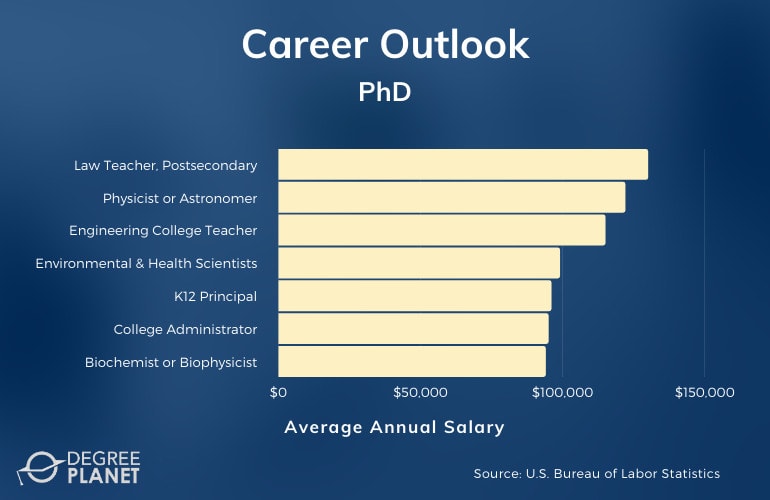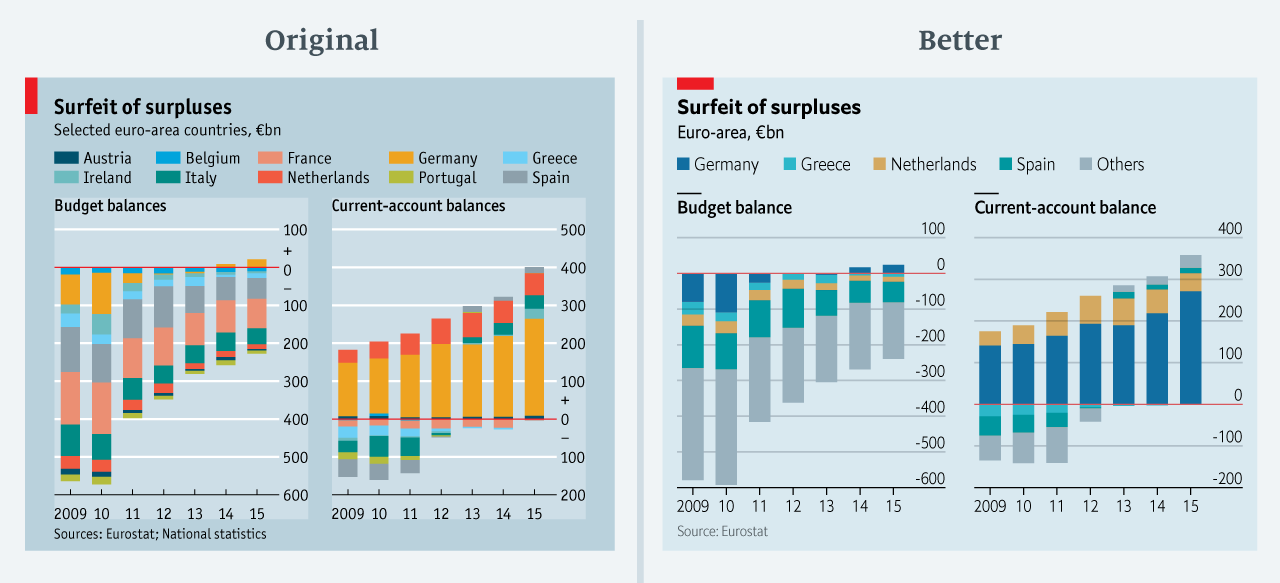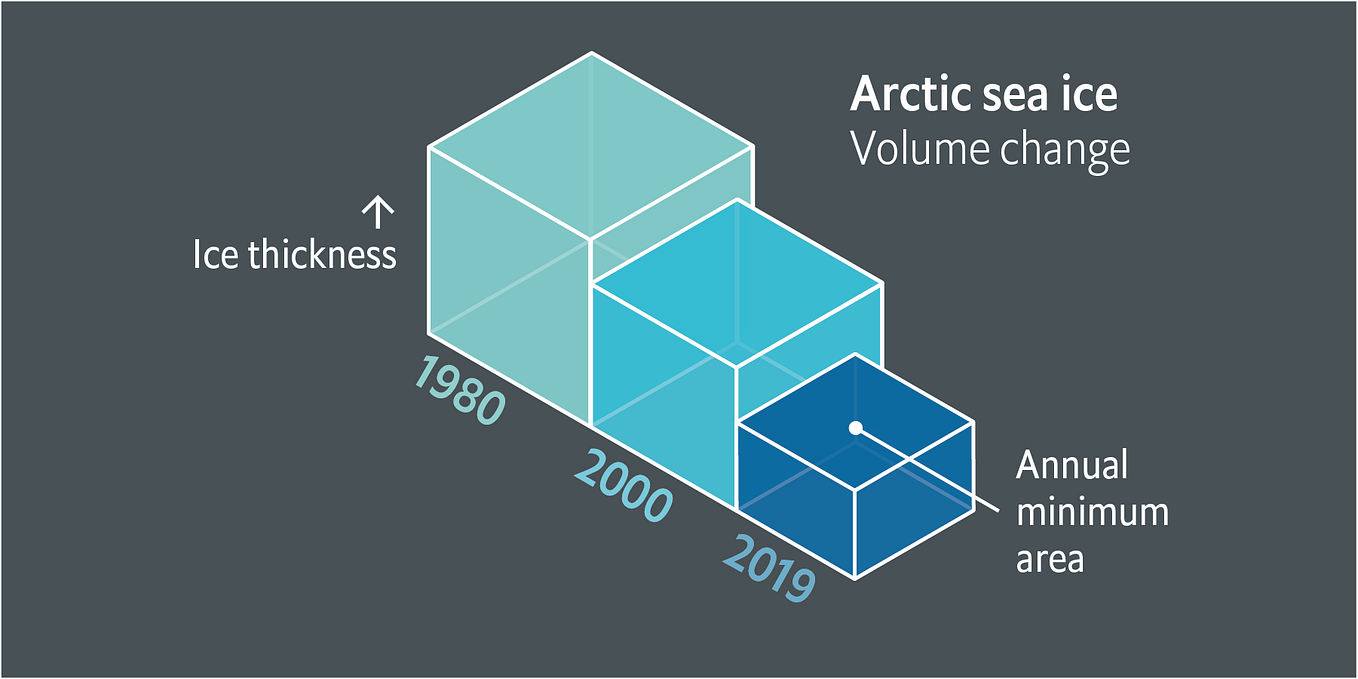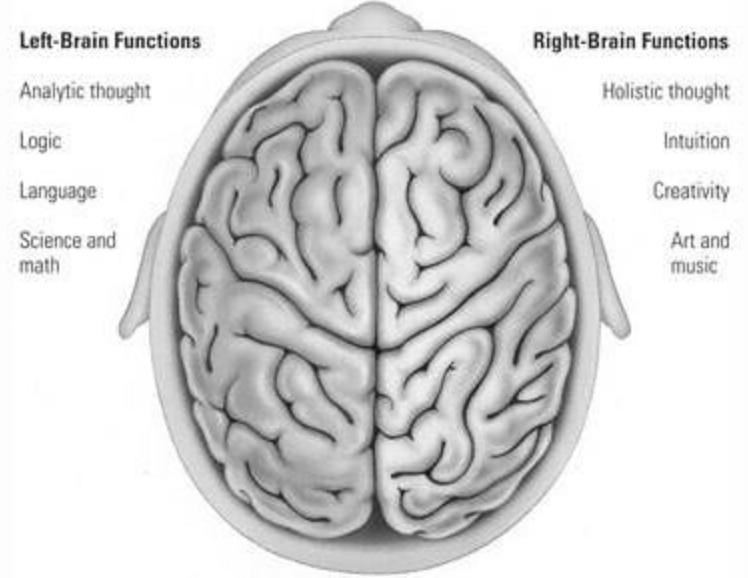
- 3 . 01 . 20
- Leaving Academia

Is a PhD Worth It? I Wish I’d Asked These 6 Questions First.
- Posted by: Chris
Updated Nov. 19, 2022
Is a PhD worth it?
Should I get a PhD?
A few people admit to regretting their PhD. Most—myself included — said that they don’t ( I wrote about why in this post ).
But we often say we don’t regret stupid things we’ve done or bad things that happen to us. This means we learned from them, not that we wanted them to happen.
So just because PhDs don’t regret it, doesn’t mean it was worth it.
But if you were to ask, Is a PhD worth it, it’s a different and more complicated question.
When potential PhD students ask me for advice, I hate giving it. I can’t possibly say whether it will be worth it for them. I only know from experience that for some PhDs the answer is no.
In this post, I’ll look at this question from five different directions, five different ways that a PhD could be worth it. Then I give my opinion on each one. You can tell me if I got the right ones of if I’m way off base. So here we go.
This is post contains affiliate links. Thanks for supporting Roostervane!
tl;dr It’s up to you to make it worth it. A PhD can hurt your finances, sink you in debt, and leave you with no clear path to success in some fields. But PhDs statistically earn more than their and have lower unemployment rates. A PhD also gives you a world-class mind, a global network, and a skill set that can go just about anywhere.
Should I Get a PhD?
tl;dr Don’t get a PhD by default. Think it through. Be clear about whether it’s going to help you reach career goals, and don’t expect to be a professor. A few rules of thumb- make sure you know where you want to go and whether a PhD is the ONLY way to get there, make sure it’s FUNDED (trust me), and make sure your program has strong ties into industry and a record of helping its students get there.
1. Is a PhD worth it for your finances?
My guess: Not usually
People waste a lot of their best years living on a grad stipend. To be honest, my money situation was pretty good in grad school. I won a large national grant, I got a ton of extra money in travel grants, and my Canadian province gave me grants for students with dependents. But even with a decent income, I was still in financial limbo–not really building wealth of any sort.
And many students scrape by on very small stipends while they study.
When it comes to entering the marketplace, research from Canada and the United States shows that PhD students eventually out-earn their counterparts with Master’s degrees. It takes PhDs a few years to find their stride, but most of us eventually do fine for earnings if we leave academia. Which is great, and perhaps surprising to many PhDs who think that a barista counter is the only non-academic future they have .
The challenge is not income–it’s time. If you as a PhD grad make marginally more than a Master’s graduate, but they entered the workforce a decade earlier, it takes a long time for even an extra $10,000 a year to catch up. The Master’s grad has had the time to build their net worth and network, perhaps buy a house, pay down debt, invest, and just generally get financially healthy.
While PhDs do fine in earnings in the long run, the opportunity cost of getting the PhD is significant.
The only real way to remedy this—if you’ve done a PhD and accumulating wealth is important to you, is to strategically maximize your earnings and your value in the marketplace to close the wealth gap. This takes education, self-discipline, and creativity, but it is possible.
I tried to calculate the opportunity cost of prolonging entry into the workforce in this post .
2. Is a PhD worth it for your career?
My guess: Impossible to tell
Most of my jobs have given me the perfect opportunity to see exactly where I could be if I’d stopped at a Master’s degree, often working alongside or for those who did and are further ahead. In terms of nuts and bolts of building career experience section on a resume, which is often the most important part, a PhD is rarely worth it. (Some STEM careers do require a PhD.)
However, at the start of my post-graduate educational journey, I was working part-time running teen programs and full time as a landscaper. I had an undergraduate degree. Despite my job and a half, I was still poor. My life had no direction, and had I not begun my Master’s to PhD journey I probably would have stayed there.
The PhD transformed me personally. It did this by developing my skills, or course. But even more so, it taught me that anything is possible. It took a poor kid from a mining town in northern Canada and gave me access to the world. It made my dreams of living abroad come true. I learned that anything is possible. And that will never go away.
It’s changed the course of my life and, subsequently, my career.
It’s impossible for you to know if it’s worth it for your career. But you can build a hell of a career with it.
So it wouldn’t be fair for me to say, “don’t get a PhD.” Because it worked out for me, and for some it does.
But there are a heck of a lot of people who haven’t figured out how to build a career with this thing. Which is one of the reasons Roostervane exists in the first place.
Psst! If you’re looking at doing a PhD because you don’t know where to go next with your career–I see you. Been there. Check out my free PDF guide– How to Build a Great Career with Any Degree.
3. Is a PhD worth it for your personal brand?
My guess: Probably
There’s some debate over whether to put a Dr. or PhD before or after your name. People argue over whether it helps in the non-academic marketplace. Some feel that it just doesn’t translate to whatever their new reality is. Some have been told by some manager somewhere that they’re overqualified and pulled themselves back, sometimes wiping the PhD off their resume altogether.
The truth is, if you have a PhD, the world often won’t know what to do with it. And that’s okay. Well-meaning people won’t understand how you fit into the landscape, and you may have to fight tooth and nail for your place in it. People may tell you they can’t use you, or they might go with what they know—which is someone less qualified and less-educated.
It happens.
But someone with a PhD at the end of their name represents an indomitable leader. So grow your possibilities bigger and keep fighting. And make your personal brand match those three little letters after your name. Do this so that the world around can’t help but see you as a leader. More importantly, do it so that you don’t forget you are.
Should I put “PhD” after my name on LinkedIn?
5 reasons you need to brand yourself
4. Is a PhD worth it for your sense of purpose?
Is getting a PhD worth it? For many people the answer is no.
PhDs are hurting.
If you’ve done one, you know. Remember the sense of meaning and purpose that drew you towards a PhD program? Was it still there at the end? If yours was, you’re lucky. I directed my purpose into getting hired in a tenure-track job, and got very hurt when it didn’t happen.
And people have vastly different experiences within programs.
Some people go through crap. But for them their research is everything and putting up with crap is worth it to feel like they have a sense of purpose. Many PhDs who are drawn into programs chasing a sense of purpose leave deeply wounded and disenchanted, ironically having less purpose when they started.
While new PhDs often talk about the PhD as a path do doing “something meaningful,” those of us who have been through entire programs have often seen too much. We’ve either seen or experienced tremendous loss of self. Some have friends who didn’t make it out the other end of the PhD program.
But there are some PhDs who have a great experience in their programs and feel tremendously fulfilled.
As I reflect on it, I don’t think a sense of purpose is inherently fulfilled or disappointed by a PhD program. There are too many variables.
However, if you’re counting on a PhD program to give you a sense of purpose, I’d be very careful. I’d be even more cautious if purpose for you means “tenure-track professor.” Think broadly about what success means to you and keep an open mind .
5. Is my discipline in demand?
Okay, so you need to know that different disciplines have different experiences. Silicon Valley has fallen in love with some PhDs, and we’re seeing “PhD required” or “PhD preferred” on more and more job postings. So if your PhD is in certain, in-demand subjects… It can be a good decision.
My humanities PhD, on the other hand, was a mistake. I’m 5 years out now, and I’ve learned how to use it and make money with it. That’s the great news. But I’d never recommend that anyone get a PhD in the humanities. Sorry. I really wish I could. It’s usually a waste of years of your life, and you’ll need to figure out how to get a totally unrelated job after anyway.
TBH, most of the skills I make money with these days I taught myself on Skillshare .
6. Is a PhD worth it for your potential?
My guess: Absolutely
Every human being has unlimited potential, of course. But here’s the thing that really can make your PhD worth it. The PhD can amplify your potential. It gives you a global reach, it gives you a recognizable brand, and it gives you a mind like no other.
One of my heroes is Brené Brown. She’s taken research and transformed the world with it, speaking to everyone from Wall-Street leaders to blue-collar workers about vulnerability, shame, and purpose. She took her PhD and did amazing things with it.
Your potential at the end of your PhD is greater than it has ever been.
The question is, what will you do with that potential?
Many PhD students are held back, not by their potential, but by the fact that they’ve learned to believe that they’re worthless. Your potential is unlimited, but when you are beaten and exhausted, dragging out of a PhD program with barely any self-worth left, it’s very hard to reach your potential. You first need to repair your confidence.
But if you can do that, if you can nurture your confidence and your greatness every day until you begin to believe in yourself again, you can take your potential and do anything you want with it.
So why get a PhD?
Because it symbolizes your limitless potential. If you think strategically about how to put it to work.
PhD Graduates Don’t Need Resumes. They Need a Freaking Vision

By the way… Did you know I wrote a book about building a career with a PhD? You can read the first chapter for free on Amazon.
So if you’re asking me, “should I do a PhD,” I hope this post helps you. Try your best to check your emotion, and weigh the pros and cons.
And at the end of the day, I don’t think that whether a PhD is worth it or not is some fixed-in-stone thing. In fact, it depends on what you do with it.
So why not make it worth it? Work hard on yourself to transform into a leader worthy of the letters after your name, and don’t be afraid to learn how to leverage every asset the PhD gave you.
One of the reasons I took my PhD and launched my own company is that I saw how much more impact I could have and money I could be making as a consultant (perhaps eventually with a few employees). As long as I worked for someone else, I could see that my income would likely be capped. Working for myself was a good way to maximize my output and take control of my income.
It’s up to you to make it worth it. Pick what’s important to you and how the degree helps you get there, and chase it. Keep an open mind about where life will take you, but always be asking yourself how you can make more of it.
Check out the related post- 15 Good, Bad, and Awful Reasons People Go to Grad School. — I Answer the Question, “Should I Go to Grad School?” )

You’re Not Good Enough… Yet
Last year, I spent $7k on a business coach. She was fantastic. She helped me through sessions of crafting my ideas to become a “thought

$200/hr Expert? Here’s the Secret!
Photo by David Monje on Unsplash I was listening to Tony Robbins this week. He was talking about being the best. Tony asks the audience,

Show Up First. Push Yourself Later
Cover photo by Andrea Leopardi on Unsplash Here’s something I realized from the gym. I was never into fitness. Hated it. I remember the one
SHARE THIS:
EMAIL UPDATES
Weekly articles, tips, and career advice
Roostervane exists to help you launch a career, find your purpose, and grow your influence
- Write for Us
Terms of Use | Privacy | Affiliate Disclaimer
©2022 All rights reserved

Research Voyage
Research Tips and Infromation
PhD or Industry Job? A Comprehensive Career Guide

Introduction
Significance of aligning career goals with the chosen path: industry vs phd, differences in career trajectories: phd vs industry, long-term aspirations: phd vs industry, differences in focus: phd vs industry, 3. financial considerations before deciding industry or phd, 4. time commitment, 5. networking and experience in industry vs phd, 6. personal preferences and values when considering phd vs industry, industries that prefer phd candidates.
Deciding between pursuing a PhD or entering the industry is a pivotal crossroad that many students and researchers encounter in their academic journey. It’s a decision that not only shapes their immediate career trajectory but also profoundly influences their long-term professional and personal aspirations.
For instance, consider a graduate student who has just completed their master’s degree in computer science. They’re passionate about artificial intelligence and want to contribute to cutting-edge research in the field. At the same time, they’re also intrigued by the idea of working in industry and applying their knowledge to develop practical solutions for real-world problems.
This decision holds immense significance for students like our hypothetical graduate, as it sets the course for their future endeavors. Whether they choose to pursue a PhD or enter the industry will determine the path they take, the opportunities they pursue, and the impact they ultimately make in their chosen field.
In this blog post, we’ll delve into the complexities of this decision-making process, exploring the various factors that students and researchers should consider when weighing the pros and cons of pursuing a doctoral degree versus embarking on a career in industry. From career goals and financial considerations to personal preferences and values, we’ll examine the multifaceted aspects that shape this critical choice.
By providing insights, examples, and practical advice, we aim to empower our readers to make informed decisions that align with their individual aspirations and aspirations. So whether you’re a graduate student pondering your next steps or a researcher contemplating a career transition, join us as we navigate the terrain of choosing between academia and industry, and embark on a journey toward fulfilling your professional dreams.
1. Career Goals and Aspirations
Consider a scenario where a student, let’s call her Sarah, has a deep passion for environmental conservation. She dreams of making a lasting impact in this field and sees herself leading innovative research projects to address pressing environmental challenges. In this case, pursuing a PhD in environmental science or a related field might align perfectly with Sarah’s career goals. A doctoral program would provide her with the opportunity to delve into specialized research topics, collaborate with experts in the field, and contribute to the advancement of environmental knowledge and practices.
Now, let’s contrast Sarah’s situation with that of another student, Michael, who is equally passionate about environmental conservation but is more interested in implementing practical solutions in the industry. Michael envisions himself working for a renewable energy company, developing sustainable technologies, and spearheading initiatives to reduce carbon emissions. For Michael, pursuing a job in the industry might be a more direct path toward realizing his career aspirations. Industry roles offer opportunities for hands-on experience, innovation, and immediate impact, which may align better with Michael’s goals compared to the longer, research-focused trajectory of a PhD program.
In light of these examples, it’s crucial for students and researchers to reflect on their long-term aspirations and how each option aligns with them. This reflection involves considering not only the specific goals they hope to achieve but also the values, interests, and work styles that shape their professional identity. By envisioning their ideal career paths and assessing how a PhD or industry job can help them reach those destinations, individuals can make more informed decisions that resonate with their personal and professional aspirations.
By encouraging readers to reflect on these aspects, we empower them to make decisions that align with their unique career trajectories and aspirations, ultimately guiding them toward fulfilling and meaningful professional journeys.
2. Interest in Research vs. Practical Application
Consider the field of artificial intelligence (AI). In academia, researchers might focus on fundamental questions about AI algorithms, exploring theories and conducting experiments to advance the understanding of machine learning principles. Their work could lead to publications in prestigious journals and conferences, contributing to the theoretical foundation of AI.
In contrast, in an industry setting, AI professionals might apply existing algorithms to develop practical solutions such as self-driving cars, personalized recommendation systems, or healthcare diagnostics tools. Their focus is on solving real-world problems and delivering tangible results that benefit society or drive business innovation.
Appeal of Research and Practical Application: PhD Vs Industry
For individuals who are drawn to academia, the appeal lies in the opportunity to conduct groundbreaking research and make original contributions to knowledge. They relish the intellectual challenge of exploring uncharted territories, pushing the boundaries of their field, and collaborating with like-minded scholars to advance human understanding.
On the other hand, for those inclined towards industry roles, the appeal lies in the opportunity to apply their knowledge and skills to solve pressing real-world problems. They enjoy the hands-on nature of their work, the fast-paced environment of industry projects, and the satisfaction of seeing their solutions deployed in the market or making a positive impact on people’s lives.
Reflection on Passion and Preferences: PhD Vs Industry
Readers are encouraged to reflect on their passion for research and their preference for hands-on work when making the decision between pursuing a PhD or entering the industry. Some individuals thrive in the academic environment, where they can immerse themselves in deep, theoretical inquiries and pursue their intellectual curiosity. Others may find more fulfillment in industry roles, where they can see the immediate application of their work and the tangible impact it has on society or businesses.
By considering their innate interests, strengths, and career preferences, individuals can align their career choices with their passions and ultimately find fulfilment in their professional endeavours. Whether it’s the pursuit of knowledge in academia or the application of knowledge in industry, embracing one’s passion and preferences is key to a rewarding career journey.
Financial Implications: PhD Vs Industry
Consider a student named Alex who is considering pursuing a PhD in computer science. Alex knows that doctoral programs often provide financial support in the form of stipends, tuition waivers, and research assistantships. While this support may cover living expenses and tuition fees, it might not offer the same level of income as a full-time job in industry. On the other hand, Alex is aware that industry positions typically offer higher starting salaries, along with benefits such as health insurance, retirement plans, and bonuses.
Financial Support in Academia: PhD Vs Industry
In academia, doctoral students often receive financial support to cover their living expenses and academic costs. This support may come from various sources, including fellowships, research grants, teaching assistantships, or stipends provided by the university or external funding agencies. While the financial support in academia may not match the earning potential of industry roles, it allows students to focus on their studies and research without the burden of significant student debt.
Earning Potential in Industry: PhD Vs Industry
In contrast, industry roles offer the potential for higher earning potential, especially in fields such as technology, finance, or healthcare. For example, a software engineer with a bachelor’s or master’s degree can command a competitive salary in the tech industry, with opportunities for career advancement and lucrative compensation packages. Additionally, industry professionals may have access to bonuses, stock options, and other financial incentives based on their performance and contributions to the organization.
Assessment of Financial Needs and Career Goals: PhD Vs Industry
Readers are encouraged to assess their financial needs and weigh them against their career goals when making the decision between academia and industry. While pursuing a PhD may offer financial support during doctoral studies, it’s essential to consider the long-term financial implications, including the potential earnings and career advancement opportunities in industry roles. Individuals should evaluate their financial priorities, such as paying off student loans, supporting their families, or saving for the future, and determine how each option aligns with their financial goals and aspirations.
By carefully assessing their financial needs and career objectives, individuals can make informed decisions that support their financial well-being and professional development. Whether it’s pursuing a PhD to pursue a career in academia or entering the industry to leverage their skills and expertise, aligning financial considerations with career goals is crucial for a successful career journey.
Time Commitment: PhD Vs Industry
Consider a student named Emily who is deliberating between pursuing a PhD in psychology and entering the industry as a human resources specialist. Emily understands that pursuing a PhD involves a significant time commitment, typically spanning several years of intensive research, coursework, and dissertation writing. Doctoral programs require a high level of dedication and perseverance, as students delve deep into their chosen field of study and contribute original research to the academic community.
Duration of Doctoral Programs:
In academia, doctoral programs vary in length depending on the field of study and individual progress. For example, a PhD in STEM fields such as engineering or computer science may take around 4-6 years to complete, including coursework, research, and dissertation writing. In contrast, doctoral programs in humanities or social sciences may take longer, ranging from 5-7 years or more. While doctoral students have the flexibility to pursue their research interests and contribute to knowledge creation, they must be prepared for the long-term commitment required to earn their degree.
Opportunities for Career Advancement in Industry:
On the other hand, entering the industry offers opportunities for career advancement and professional growth at a faster pace. For instance, Emily may secure a position as a human resources specialist in a company after completing her undergraduate degree. In the industry, professionals can gain hands-on experience, develop practical skills, and take on leadership roles that may lead to promotions, salary increases, and broader career opportunities.
Consideration of Time Values: PhD Vs Industry
Readers are encouraged to consider how they value their time and whether they’re prepared for the commitment required by each option. While pursuing a PhD offers the opportunity for in-depth exploration and specialization in a particular field, it also requires a long-term commitment and dedication to the research process. On the other hand, entering the industry allows individuals to gain practical experience, build a professional network, and advance their careers more quickly, but it may involve sacrificing the time and autonomy afforded by doctoral studies.
By reflecting on their personal priorities, career aspirations, and time values, individuals can make informed decisions about whether to pursue a PhD or enter the industry. Whether it’s investing time in academic research to contribute to knowledge creation or gaining practical experience in industry roles to drive innovation and impact, aligning time commitments with career goals is essential for a fulfilling and successful career journey.
Networking Opportunities and Industry Experience: PhD Vs Industry
Consider a student named Daniel who is contemplating between pursuing a PhD in biomedical engineering and working as a research scientist in a pharmaceutical company. Daniel recognizes that both paths offer unique networking opportunities and valuable industry experience. In academia, he would have the chance to collaborate with leading researchers, attend conferences, and publish papers in prestigious journals, thereby building a strong academic network and establishing himself as an expert in his field.
On the other hand, working in the pharmaceutical industry would expose Daniel to a different set of experiences, such as conducting applied research, developing medical devices or drugs, and navigating regulatory processes. Industry roles provide opportunities to work with multidisciplinary teams, gain practical skills in project management and product development, and interact with professionals from various sectors, including academia, government, and private companies.
Value of Connections and Practical Skills: PhD Vs Industry
In academia, the value of connections lies in building relationships with fellow researchers, mentors, and collaborators who share similar research interests and can offer support and guidance throughout one’s academic career. Academic connections can lead to collaborative research projects, funding opportunities, job referrals, and invitations to participate in conferences or workshops.
In contrast, industry roles emphasize the importance of practical skills and real-world experience in areas such as problem-solving, teamwork, communication, and adaptability. Working in industry allows individuals to apply their academic knowledge to solve practical problems, develop innovative solutions, and bring products or services to market. Industry connections can open doors to career advancement, mentorship opportunities, and access to resources and expertise that may not be readily available in academia.
Consideration of Career Goals and Preferences: PhD Vs Industry
Readers are encouraged to consider how networking opportunities and industry experience align with their career goals and personal preferences. Some individuals may thrive in the collaborative and intellectually stimulating environment of academia, where they can pursue their research interests and contribute to the advancement of knowledge. Others may prefer the dynamic and fast-paced nature of industry roles, where they can make tangible contributions to products or services and see the immediate impact of their work on society or the economy.
By reflecting on their career aspirations, interests, and values, individuals can make informed decisions about whether to pursue a PhD or enter the industry. Whether it’s building a strong academic network to advance one’s research agenda or gaining practical experience and industry connections to excel in a specific field, aligning networking opportunities and industry experience with career goals is essential for a successful and fulfilling career journey.
Reflection on Personal Preferences, Strengths, and Values: PhD Vs Industry
Consider a student named Maya who is at a crossroads between pursuing a PhD in neuroscience and starting a career as a data analyst in a technology company. Maya is encouraged to reflect on her personal preferences, strengths, and values when making this decision. She considers her passion for scientific inquiry and her ability to think critically and analytically, which are strengths that align well with both academic research and data analysis roles.
Influence of Individual Temperament and Work Style: PhD Vs Industry
Maya also reflects on her temperament and work style, recognizing that she thrives in environments that foster creativity, autonomy, and intellectual curiosity. She enjoys the freedom to explore complex problems, develop innovative solutions, and collaborate with colleagues who share her enthusiasm for discovery. However, she also appreciates the structure, efficiency, and tangible outcomes associated with industry roles, where she can leverage her analytical skills to drive business decisions and solve practical problems.
Importance of Choosing a Fulfilling Path: PhD Vs Industry
Ultimately, Maya understands the importance of choosing a path that aligns with her values and provides fulfillment. She recognizes that while pursuing a PhD may offer opportunities for intellectual growth, academic recognition, and contribution to knowledge, it also requires a long-term commitment and perseverance to overcome challenges and achieve success. On the other hand, working in the industry may offer immediate career advancement, financial stability, and opportunities for professional development, but it may involve sacrificing some of the autonomy and freedom associated with academic research.
By reflecting on her personal preferences, strengths, and values, Maya can make an informed decision that aligns with her aspirations and maximizes her potential for success and fulfillment. Whether she chooses to pursue a PhD in neuroscience to pursue her passion for research or embark on a career as a data analyst to apply her analytical skills in a corporate setting, Maya’s decision reflects her commitment to personal growth, professional excellence, and lifelong learning.
Here’s the list of specific companies and industry sectors that often prefer candidates with PhDs:
Visit my Blog section on Careers during and After PhD for more detailed career opportunities.
In the journey of deciding between pursuing a PhD or entering the industry, individuals are faced with a multitude of factors to consider, each shaping their career trajectory in profound ways. From career goals and financial considerations to personal preferences and values, the decision is deeply personal and requires careful reflection and deliberation.
Throughout this exploration, we have examined the significance of aligning career goals with the chosen path and the differences in focus between academia and industry. We’ve discussed the financial implications, time commitments, networking opportunities, and the influence of individual temperament and work style. We’ve emphasized the importance of choosing a path that resonates with one’s values and provides fulfillment, whether through academic research or practical application in industry roles.
Ultimately, there is no one-size-fits-all answer, and the decision should be guided by one’s unique aspirations, strengths, and aspirations. Whether pursuing a PhD to delve into deep research questions, contribute to knowledge creation, and advance the frontiers of human understanding, or entering the industry to apply skills, drive innovation, and make tangible contributions to society or businesses, individuals have the power to shape their own career journeys.
As readers navigate this pivotal decision, we encourage them to trust their instincts, seek guidance from mentors and professionals, and stay true to their passions and values. Whether pursuing a path in academia or industry, may their journey be filled with growth, fulfillment, and meaningful contributions to their chosen fields and beyond.
Upcoming Events
- Visit the Upcoming International Conferences at Exotic Travel Destinations with Travel Plan
- Visit for Research Internships Worldwide

Recent Posts
- Top 10 AI-Based Research Paper Abstract Generators
- EditPad Research Title Generator: Is It Helpful to Create a Title for Your Research?
- Are Postdoctoral Fellowships Taxable? A Guide to Understanding Tax Implications
- How to Get Off-Cycle Research/Academic Internships
- How to End Your Academic/Research Internship?
- All Blog Posts
- Research Career
- Research Conference
- Research Internship
- Research Journal
- Research Tools
- Uncategorized
- Research Conferences
- Research Journals
- Research Grants
- Internships
- Research Internships
- Email Templates
- Conferences
- Blog Partners
- Privacy Policy
Copyright © 2024 Research Voyage
Design by ThemesDNA.com

Thank you for visiting nature.com. You are using a browser version with limited support for CSS. To obtain the best experience, we recommend you use a more up to date browser (or turn off compatibility mode in Internet Explorer). In the meantime, to ensure continued support, we are displaying the site without styles and JavaScript.
- View all journals
- Explore content
- About the journal
- Publish with us
- Sign up for alerts
- CAREER COLUMN
- 09 January 2019
Why earning a PhD is an advantage in today’s industry job market
- Isaiah Hankel 0
Isaiah Hankel is the founder and chief executive of the website Cheeky Scientist.
You can also search for this author in PubMed Google Scholar
“Companies don’t want to hire PhDs because they’re overqualified and too independent.”
Access options
Access Nature and 54 other Nature Portfolio journals
Get Nature+, our best-value online-access subscription
24,99 € / 30 days
cancel any time
Subscribe to this journal
Receive 51 print issues and online access
185,98 € per year
only 3,65 € per issue
Rent or buy this article
Prices vary by article type
Prices may be subject to local taxes which are calculated during checkout
doi: https://doi.org/10.1038/d41586-019-00097-x
Related Articles

I’m worried I’ve been contacted by a predatory publisher — how do I find out?
Career Feature 15 MAY 24

How I fled bombed Aleppo to continue my career in science
Career Feature 08 MAY 24

Illuminating ‘the ugly side of science’: fresh incentives for reporting negative results

Reading between the lines: application essays predict university success
Research Highlight 17 MAY 24

How to stop students cramming for exams? Send them to sea
News & Views 30 APR 24

How young people benefit from Swiss apprenticeships
Spotlight 17 APR 24

Reinvent oil refineries for a net-zero future
Editorial 08 MAY 24

I fell out of love with the lab, and in love with business
Spotlight 01 MAY 24

This social sciences hub galvanized India’s dynamic growth. Can it survive?
News 30 APR 24
Faculty Positions& Postdoctoral Research Fellow, School of Optical and Electronic Information, HUST
Job Opportunities: Leading talents, young talents, overseas outstanding young scholars, postdoctoral researchers.
Wuhan, Hubei, China
School of Optical and Electronic Information, Huazhong University of Science and Technology
Postdoc in CRISPR Meta-Analytics and AI for Therapeutic Target Discovery and Priotisation (OT Grant)
APPLICATION CLOSING DATE: 14/06/2024 Human Technopole (HT) is a new interdisciplinary life science research institute created and supported by the...
Human Technopole
Research Associate - Metabolism
Houston, Texas (US)
Baylor College of Medicine (BCM)
Postdoc Fellowships
Train with world-renowned cancer researchers at NIH? Consider joining the Center for Cancer Research (CCR) at the National Cancer Institute
Bethesda, Maryland
NIH National Cancer Institute (NCI)
Faculty Recruitment, Westlake University School of Medicine
Faculty positions are open at four distinct ranks: Assistant Professor, Associate Professor, Full Professor, and Chair Professor.
Hangzhou, Zhejiang, China
Westlake University
Sign up for the Nature Briefing newsletter — what matters in science, free to your inbox daily.
Quick links
- Explore articles by subject
- Guide to authors
- Editorial policies

- Is Doing a PhD Worth It?
- Finding a PhD
Undertaking a PhD shouldn’t be a light decision. In fact, it’s one of the most challenging academic journeys you could embark on. This begs the question: Is a PhD worth it?
A PhD is the highest globally recognised postgraduate degree that higher education institutions can award. The degree, which is awarded to candidates who demonstrate original and extensive research in a particular field of study, is not only invaluable in itself, but can lead to improves job prospects, a higher salary on average, and sets you up for invaluable skills and traits. If you are a graduate student considering undertaking doctoral studies, read our guidance to help you make an informed decision.
Career Prospects
Although a full time PhD takes on average three to five years to complete, that doesn’t mean you shouldn’t have a long-term goal, especially with the possibilities that come with it. It’s a common misunderstanding that PhDs only open the door for educational based roles such as university lecturers and training providers. Although obtaining a PhD does lend itself to an academic career, the opportunities extend far beyond the traditional academic job. In fact, recent data from the UK’s Higher Education Statistics Agency (HESA) indicates only 23% of PhD graduates take a position in educational roles. This low percentage is primarily because PhD graduates have a wide range of skills that make them suitable for a broad spectrum of roles. This is being seen first hand by the increasing number of PhD graduates who are entering alternative roles such as research, writing, law and investment banking.
Percentages aside, one of the most desirable post-doctoral fields is working within independent Research and Development (R&D) labs and new emerging companies. Both industries, especially R&D labs, have dedicated groups of PhD graduates who lead research activities, design new products and take part in crucial strategic meetings. Not only is this a stimulating line of work, but the average salaries in R&D labs and emerging start-ups are incredibly lucrative. In comparison, an undergraduate with five years of experience within their given field will, on average, likely earn less than a new PhD graduate taking on an R&D position. Completing an advanced degree programme demonstrates that you have developed a knowledge base in your research area which gives you a head start over other candidates who many only have an undergraduate degree or masters degree.
Pursuing your Interests
One factor to consider when asking ‘is a PhD worth it?’ is what your interests are. A doctoral degree is a fantastic opportunity to spend time learning about something that appeals to you. Having an interest in your research area as a PhD student is a massive advantage as you will always be motivated to push the boundaries of your research. Possessing an advanced degree in a field your are genuinely interested in can also help shape your career path and help you land your dream job.
Transferable Skills
PhD students are widely in demand for their wide range of skills they develop during their studies. Not only do these skills extend beyond that obtained by an undergraduate counterpart, but the transferability of the skills is what makes them stand out amongst employers.
Professional Networking
To successfully undertake a PhD, it’s paramount to have a good working relationship with your PhD supervisor and other students in your laboratory, workshop, or department. This relationship will also extend to undertaking short-term collaborative projects, delivering joint conferences and co-authoring research papers. The modern doctorate needs to demonstrate effective team working, collaboration and networking to be successful in their chosen field. This skill is highly sought by all employers, as open and effective communication is key to any project.
Publication
Although publishing isn’t a requirement of all PhD projects, all students will have the opportunity to produce technical or informative texts, regardless of whether it’s in the form of reports or academic journal articles.
The preparation, research, writing, and editing of such texts demonstrate your ability to amalgamate information and communicate complex ideas. Regardless of an employer’s field, the ability to record and summarise essential information is a fundamental skill they look for. Demonstrating you’re capable of delivering factual documents will help set you apart from colleagues, which will help make strides in your career.
Research Skills
One of the most valued skills you’ll gain during your PhD study is the ability to undertake original research. Not only does this demonstrate you are able to think independently, but also that you are prepared to take on responsibility and can contribute original ideas to the workplace. In undertaking a PhD, you will prove yourself as a professional expert in this area, making you a suitable candidate for research jobs.
Data analysis
A PhD programme, in particular a STEM PhD project, is likely to involve identifying, managing and analysing large amounts of complex information. In addition to this, you could be required to assimilate this information in an appropriate and understandable format. Because of this a data driven doctorate degree is highly desirable in numerical industries such as banking and engineering.
Public Speaking

In today’s industries, excellent oral communication skills are becoming more and more essential. Although many individuals struggle with this skill, as a PhD graduate, you’re more likely to excel in this area. This is because of the many public speaking opportunities you’ll be exposed to during your course. Through conference talks, presentations, and posters, you’ll learn to become confident and engaging when speaking to a broad audience. You’ll also showcase to future employers that you know how to present complex ideas and defend them.
Project management
Even if your career goal isn’t to become a project manager, all jobs require some project management. Fortunately, PhDs are a project management exercise. To complete your thesis, you must design a project, establish a realistic timetable, manage stakeholders and overcome failures. While attempting to achieve the long-term goal set out by the PhD, you must also set, manage, and achieve short-term goals to make progress.
This scenario accurately represents any modern workplace. You’ll be given the autonomy to manage your projects and workload and be expected to do so at a competent level. With this in mind, PhD holders can show they are more than capable of managing a team, and in doing so broaden their career options when entering the job market.
Critical Thinking
Every doctoral student will gain unparalleled skills in exercising critical thinking. This is due to having been trained to address problems, identify connections and analyse information to come to sensible conclusions. A critical thinker is exceptionally beneficial for any industry.
Co-operation
Nearly all careers place a strong emphasis on team working and interpersonal skills. Although producing a PhD thesis is an individual task, to complete your doctoral degree you’ll need to collaborate with others, whether it be to conduct experiments, collect data, operate as part of a larger research group or co-write manuscripts. To complete these tasks, you must know how to divide the task, share with others, communicate effectively, and resolve conflicts. All these skills carry over to any workplace, not just those in an academic position. By demonstrating that you can work as part of a team, you’ll significantly increase your desirability for any role.
Many prospective PhD students see a future in academia. Strong communication skills are essential in this line of work as in addition to giving lectures you may be involved in the supervision of graduate students during their final year projects.
As a graduate student you will have spent the last few years in university and likely have some student debt. A doctorate programme is a further large financial commitment, in particular if you self-fund your studies which can take 3-5 years to complete as a full time PhD student. Even if you secure a funded PhD, the available living stipend will comparatively be less than you would potentially earn if you had gone into employment instead. Part time PhD programmes also worth looking at for PhD candidates, as they allow researchers to work during their PhD course who can then spend their earnings towards their living costs and tuition fees.
In analysing the career prospects and transferable skills gained in undertaking a PhD degree, it is clear that pursuing a PhD is an extremely worthwhile venture.
You will develop deep knowledge in your research area which gives you an advantage when applying to academic jobs (for example a professor or research advisor/PostDoc). During your doctoral years you’ll also gain many skills valued in any career path, from problem solving, to managing tasks and communicating complex ideas. Possessing a PhD correlates to higher median salaries, and can aid career progression as a PhD holder can use their specialist skills to seek out unique opportunities in industry. These skills, combined with the new roles that open up for doctorate holders, such as working within innovative Research and Development teams, presents an exciting and prosperous future.
Browse PhDs Now
Join thousands of students.
Join thousands of other students and stay up to date with the latest PhD programmes, funding opportunities and advice.

The Savvy Scientist
Experiences of a London PhD student and beyond
Is a PhD Worth It? Should I Do a PhD?
It’s been almost a year since I was officially awarded my PhD. How time flies! I figure now is a good time to reflect on the PhD and answer some of life’s big questions. Is a PhD worth it? Does having a PhD help your future job prospects? Am I pleased that I did a PhD and would I recommend that you do a PhD?
In this post I’ll walk through some of the main points to consider. We’ll touch on some pros and cons, explore the influence it could have on your career and finally attempt to answer the ultimate question. Is a PhD worth it?
Before we get into the details, if you’re considering applying for a PhD you may also want to check out a few other posts I’ve written:
- How Hard is a PhD?
- How Much Work is a PhD?
- How Much Does a PhD Student Earn? Comparing a PhD Stipend to Grad Salaries
- Characteristics of a Researcher
Are you seated comfortably? Great! Then we’ll begin.
The Pros and Cons of PhDs
When I have a difficult decision to make I like to write a pros and cons list. So let’s start by breaking down the good and bad sides of getting a PhD. Although I’ve tried to stay objective, do take into account that I have completed a PhD and enjoyed my project a lot!
These lists certainly aren’t exhaustive, so be sure to let me know if you can think of any other points to add!
The Good Parts: Reasons to Do a PhD
Life as a phd student.
- You get to work on something really interesting . Very few people outside of academia get to dive so deep into topics they enjoy. Plus, by conducting cutting edge research you’re contributing knowledge to a field.
- It can be fun! For example: solving challenges, building things, setting up collaborations and going to conferences.
- Being a PhD student can be a fantastic opportunity for personal growth : from giving presentations and thinking critically through to making the most of being a student such as trying new sports.
- You are getting paid to be a student : I mean come on, that’s pretty good! Flexible hours, socialising and getting paid to learn can all be perks. Do make sure you consciously make the most of it!
Life As A PhD Graduate
- The main one: Having a PhD may open doors . For certain fields, such as academia itself, a PhD may be a necesity. Whilst in others having a PhD can help demonstrate expertise or competency, opening doors or helping you to leapfrog to higher positions. Your mileage may vary!
- You survived a PhD: this accomplishment can be a big confidence booster .
- You’ve got a doctorate and you can use the title Dr. Certainly not enough justification on it’s own to do a PhD, but for some people it helps!
The Bad Parts: Potential Reasons Not to Do a PhD
- It can be tough to complete a PhD! There are lots of challenges . Unless you’re careful and take good care of yourself it can take a mental and physical toll on your well being.
- A PhD can be lonely ( though doesn’t have to be ), and PhD supervisors aren’t always as supportive as you’d like them to be.
- Additionally, in particular now during the pandemic, you might not be able to get as much support from your supervisor, see your peers or even access the equipment and technical support as easily as in normal times.
- You might find that having a PhD may not bring the riches you were expecting . Have a certain career you’re looking to pursue? Consider trying to find out whether or not having a PhD actually helps.
- Getting a job with a PhD can still be tough . Let’s say you want to go for a career where having a PhD is required, even once you’ve got a PhD it might not be easy to find employment. Case in point are academic positions.
- Even though you’ve put in the work you may want to use your Dr title sparingly , it certain industries a PhD may be seen as pretencious. Also, use your title sparingly to avoid getting mistaken for a medic (unless of course you’re one of them too!)
Is a PhD Good For Your Career?
If you’re wondering “Should I do a PhD?”, part of your motivation for considering gaining a PhD may be your career prospects. Therefore I want to now dive deeper into whether or not a PhD could help with future employment.
It is difficult to give definitive answers because whether or not a PhD helps will ultimately depend a lot upon what kind of career you’re hoping to have. Anyway, let’s discuss a few specific questions.
Does a PhD Help You Get a Job?
For certain industries having a PhD may either be a requirement or a strong positive.
Some professions may require a PhD such as academia or research in certain industries like pharma. Others will see your qualification as evidence that you’re competent which could give you an edge. Of course if you’re aiming to go into a career using similar skills to your PhD then you’ll stand a better chance of your future employer appreciating the PhD.
In contrast, for other roles your PhD may not be much help in securing a job. Having a PhD may not be valued and instead your time may be better spent getting experience in a job. Even so, a PhD likely won’t have been completely useless.
When I worked at an engineering consultancy the recruitment team suggested that four years of a PhD would be considered comparable to two or three years of experience in industry. In those instances, the employer may actively prefer candidates who spent those years gaining experience on the job but still appreciates the value of a PhD.
Conclusion: Sometimes a PhD will help you get a job, othertimes it wont. Not all employers may appreciate your PhD though few employers will actively mark you down for having a PhD.
Does a PhD Increase Salary? Will it Allow You to Start at a Higher Level?
This question is very much relates to the previous one so my answer will sound slightly similar.
It’ll ultimately depend upon whether or not the industry and company value the skills or knowledge you’ve gained throughout your PhD.
I want to say from the start that none of us PhD-holders should feel entitled and above certain types of position in every profession just for having a PhD. Not all fields will appreciate your PhD and it may offer no advantage. It is better to realise this now.
Some professions will appreciate that with a PhD you’ll have developed a certain detail-orientated mindset, specialised knowledge or skills that are worth paying more for. Even if the position doesn’t really demand a PhD, it is sometimes the case that having someone with a PhD in that position is a useful badge for the company to wave at customers or competitors. Under these circumstances PhD-holders may by default be offered slightly higher starting positions than other new-starters will lower degree qualifications.
To play devil’s advocate, you could be spending those 3-4 (or more) years progressing in the job. Let’s look at a few concrete examples.
PhD Graduate Salaries in Academia
Let’s cut to the chase: currently as a postdoc at a decent university my salary is £33,787, which isn’t great. With a PhD there is potential to possibly climb the academic ladder but it’s certainly not easy. If I were still working in London I’d be earning more, and if I were speficially still working at Imperial in London I’d be earning a lot more. Browse Imperial’s pay scales here . But how much is it possible to earn with a PhD compared to not having one?
For comparison to research staff with and without PhDs:
As of 2023 research assistants (so a member of staff conducting research but with no PhD) at Imperial earn £38,194 – £ 4 1,388 and postdoctoral research associates earn £43,093 – £50,834 . Not only do you earn £5000 or more a year higher with a PhD, but without a PhD you simply can’t progress up the ladder to research fellow or tenure track positions.
Therefore in academia it pays to have a PhD, not just for the extra cash but for the potential to progress your career.
PhD Graduate Salaries in Industry
For jobs in industry, it is difficult to give a definitive answer since the variety of jobs are so wide ranging.
Certain industries will greatly reward PhD-holders with higher salaries than those without PhDs. Again it ultimately depends on how valuable your skills are. I’ve known PhD holders to do very well going into banking, science consultancy, technology and such forth.
You might not necessarily earn more money with a PhD in industry, but it might open more doors to switch industries or try new things. This doesn’t necessarily mean gaining a higher salary: I have known PhD-holders to go for graduate schemes which are open to grads with bachelors or masters degrees. Perhaps there is an argument that you’re more employable and therefore it encourages you to make more risky career moves which someone with fewer qualifications may make?
You can of course also use your PhD skills to start your own company. Compensation at a start-up varies wildly, especially if you’re a founder so it is hardly worth discussing. One example I can’t resist though is Magic Pony. The company was co-founded by a Imperial PhD graduate who applied expertise from his PhD to another domain. He sold the company two years later to Twitter for $150 million . Yes, including this example is of course taking cherry-picking to the extreme! The point stands though that you can potentially pick up some very lucrative skills during your PhD.
Conclusion: Like the previous question, not all industries will reward your PhD. Depending on what you want to go and do afterward your PhD, it isn’t always worth doing a PhD just for career progression. For professions that don’t specifically value a PhD (which is likely the majority of them!) don’t expect for your PhD to necessarily be your ticket to a higher position in the organisation.
Is a PhD Worth it?
What is “it”.
When we’re asking the question “is a PhD worth it?” it is a good idea to touch on what “it” actually is. What exactly are PhD students sacrificing in gaining a PhD? Here is my take:
- Time . 3-5 (more more) years of your life. For more see my post: how long a PhD takes .
- Energy. There is no doubt that a PhD can be mentally and physically draining, often more so than typical grad jobs. Not many of us PhD students often stick to normal office hours, though I do encourage you to !
- Money. Thankfully most of us, at least in STEM, are on funded PhD projects with tax free stipends. You can also earn some money on the side quite easily and without paying tax for a while. Even so, over the course of a PhD you are realistically likely to earn more in a grad job. For more details on how PhD stipends compare to grad salaries read my full analysis .
- Potential loss of opportunities . If you weren’t doing a PhD, what else could you be doing? As a side note, if you do go on to do a PhD, do make sure you to take advantage of the opportunities as a PhD student !
When a PhD Could Be Worth It
1. passion for a topic and sheer joy of research.
The contribution you make to progressing research is valuable in it’s own right. If you enjoy research, can get funding and are passionate about a subject by all means go and do the PhD and I doubt you’ll regret it.
2. Learning skills
If there is something really specific you want to spend three year or more years learning then a PhD can be a great opportunity. They’re also great for building soft skills such as independence, team work, presenting and making decisions.
Do be aware though that PhD projects can and do evolve so you can’t always guarantee your project will pan out as expected.
If there is the option to go into a career without a PhD I’d bet that in a lot of cases you’d learn more, faster, and with better support in industry. The speed of academic research can be painstakingly slow. There are upsides to learning skills in academia though, such as freedom and the low amount of responsibility for things outside your project and of course if you’re interested in something which hasn’t yet reached industry.
3. Helping with your career
See the section further up the page, this only applies for certain jobs. It is rare though that having a PhD would actively look bad on your CV.
When a PhD May Not Be Worth It
1. just because you can’t find another job.
Doing a PhD simply because you can’t find a job isn’t a great reason for starting one. In these circumstances having a PhD likely isn’t worth it.
2. Badge collecting
Tempted by a PhD simply to have a doctorate, or to out-do someone? Not only may you struggle with motivation but you likely won’t find the experience particularly satisfying. Sure, it can be the icing on the cake but I reckon you could lose interest pretty quickly if it is your only motivation for gaining a PhD.
Do I Feel That My Own PhD Was Worth It?
When I finished my undergrad I’d been tempted by a PhD but I wasn’t exactly sure about it. Largely I was worried about picking the wrong topic.
I spent a bit of time apprehensively applying, never being sure how I’d find the experience. Now that I’ve finished it I’m very pleased to have got my PhD!
Here are my main reasons:
- I enjoyed the research and felt relatively well fulfilled with the outcomes
- Having the opportunity to learn lots of some new things was great, and felt like time well spent
- I made new friends and generally enjoyed my time at the university
- Since I’d been interested in research and doing a PhD for so long, I feel like if I’d not done it I’d be left wondering about it and potentially end up regretting it.
In Summary, Is a PhD Worth It?
I’ve interviewed many PhD students and graduates and asked each one of them whether the PhD was worth it . The resounding answer is yes! Now of course there is some selection bias but even an interviewee who had dropped out of their PhD said that the experience had been valueable.

If you’ve got this far in the post and are still a little on the fence about whether or not a PhD is worth it, my advice is to look at the bigger picture. In comparison to your lifetime as a whole, a PhD doesn’t really take long:

People graduating now likely won’t retire until they’re in their 70s: what is 3-4 years out of a half century long career?
So Should I Do a PhD?
Whether a PhD is worth all the time and energy ultimately comes down to why you’re doing one in the first place.
There are many great reasons for wanting to do a PhD, from the sheer enjoyment of a subject through to wanting to open up new career opportunities.
Nevertheless, it is worth pointing out that practically every PhD student encounters difficult periods. Unsurprisingly, completing a PhD can be challenging and mentally draining. You’ll want to ensure you’re able to remind yourself of all the reasons why it is worth it to provide motivation to continue.
If you’re interested, here were my own reasons for wanting a PhD.
Why I decided to pursue a PhD
Saying that, if you’re interested in doing a PhD I think you should at least apply. I can’t think of any circumstances where having a PhD would be a hindrance.
It can take a while to find the right project (with funding ) so I suggest submitting some applications and see how they go. If you get interesting job offers in the meantime you don’t need to commit to the PhD. Even if you start the PhD and find you don’t enjoy it, there is no shame in leaving and you can often still walk away with a master’s degree.
My advice is that if you’re at all tempted by a PhD: go for it!
I hope this post helped you to understand if a PhD is worth it for you personally. If it is then best of luck with your application!
Considering doing a PhD? I have lots of other posts covering everything about funding , how much PhD students earn , choosing a project and the interview process through to many posts about what the life of a PhD student and graduate is like . Be sure to subscribe below!
Share this:
- Click to share on Facebook (Opens in new window)
- Click to share on LinkedIn (Opens in new window)
- Click to share on Twitter (Opens in new window)
- Click to share on Reddit (Opens in new window)
Related Posts

PhD Salary UK: How Much Do PhD Students Get Paid Compared to Graduates?
5th February 2024 5th February 2024

The Benefits of Having a PhD
7th September 2022 30th January 2024

My top PhD regrets: 10 lessons learned by a PhD grad
21st April 2022 25th September 2023
4 Comments on “Is a PhD Worth It? Should I Do a PhD?”
Hi Thanks for the post . I have been struggling to make a decision regarding doing a PhD or doing a second masters . I’m currently doing an msc civil engineering online (because of covid) so for my research I am not able to conduct lab experiments. Therefore my research is more of a literature review / inductive research. So I feel I’ll be at a disadvantage if I were to apply for a phd program especially at high ranking universities like oxford , imperial etc What are your thoughts?
Hey Esther,
I completely appreciate that it’s not an ideal situation at the moment so thanks for reaching out, it’s a great question. A few thoughts I have:
• If you are already tempted by a PhD and would do a second masters simply to gain lab experience, there is no harm in applying for the PhD now. At the very least I suggest considering reaching out to potential supervisors to discuss the situation with them. The universities realise that current applicants won’t have been able to gain as much research experience as normal over the last year. Practical lab experience has halted for so many people so don’t let it put you off applying!
• If you don’t get in on the first go, I don’t believe it looks bad to apply again with more experience. I applied for PhDs for three years, it doesn’t need to take this long but the point is that there’s not much reason to give it a go this year and stand a chance of getting accepted.
• Although we can be optimistic, even if you were to do a second masters it may not be guaranteed that you can gain as much lab experience as you’d like during it: even more reason to start the ball rolling now.
I hope that helps, let me know if you’d like any other further advice.
Best of luck. 🙂
Funny, every one i have talked to as well as myself when we asked ourselves and others whether the PhD was worth it is a resounding ‘No.’
I guess it comes down to a Blue or Red Pill, LoL.
Hi Joe, thanks for sharing this. I’ve spent enough time on the PhD subreddit to see many other people who haven’t had good experiences either! On the flipside many people do have positive experiences, myself included. There is perhaps an element of luck as to what your research environment turns out to be like which could somewhat dictate the PhD experience, but ultimately I do think that answering whether or not a PhD has been worth it really depends a lot on why someone is pursuing a PhD in the first place. I’m keen to make sure people don’t have unrealistic expectations for what it could bring them. I really welcome hearing about different experiences and if you’d fancy sharing your perspective for the PhD profiles series I’d love to hear from you.
Leave a Reply Cancel reply
Your email address will not be published. Required fields are marked *
Notify me of follow-up comments by email.
This site uses Akismet to reduce spam. Learn how your comment data is processed .
Privacy Overview
Is a Ph.D. Worth It Anymore? Cont'd
Three more readers share their critical experiences of working toward a Ph.D. and the postdoctorate that often accompanies it. Here’s Mary:
I spent (too many) years in a prestigious PhD program. During my post-doc, I saw newly-hired Assistant Professors work 60-hour weeks to generate preliminary data in order to secure funding during lean years (early ‘90s). They spent their Saturdays in the lab, bringing their young children with them. (The kids wrote on white boards. One spouse cleaned the lab.) Quite simply, I did not possess the interest or drive for this kind of life. When my son was born, I determined that I would earn a living in a way that provided economic security, as well as time to be there for him. Initially, I was fortunate to secure a non-research position in a government agency. I later moved to the private sector. There is an arrogance about academia that is imparted to doctoral students: that the tenure-track position is “pure” research and the only honorable path for a PhD. Stuff and nonsense.
Begin with the rate at which students for a particular advisor may graduate. One per year? One every other year? In a 30-year career, a lab chief may churn out 20 PhDs. There are far too few academic positions to justify this; rather, graduate students and post-docs are inexpensive labor. I wonder about the thinking that keeps trainees believing that they will be the exceptional ones to beat those odds. I love what I do, and those 10 years were worth the opportunity cost. In my 21-year career, I have used my training, and the way I learned to think, most days. Bonus: I have a life outside work. Look around, students: The academic career is not your only, or even your best, option.
Ilya would agree, and he emphasizes the upsides of the private sector to drive scientific progress:
Bachelor’s degrees are not for all people and all walks of life, and advanced degrees all the more so. I tried to get a Ph.D. in an engineering field. Leaving with a master’s was a great decision, even though it was largely forced on me. Over the ensuing years, I watched my friends who had stayed for the long slog become increasingly bitter. Here’s why. Academic research is the right channel, if not the only channel, for strikingly original, pathbreaking work. Once a field begins to attract private investment, however, academia needs to step back. Once a field has reached a certain level of popularity and recognition, the number of strivers greatly exceeds the number of original directions available, leading to duplicate work and dissertations of little value. In fields (such as mine) that require expensive and temperamental lab equipment, a company can afford to buy the best tools and hire technicians to maintain them. Graduate students waste years fussing over obsolete instruments. And, finally, academia tends to breed faculty with outsized egos who abuse students as a source of cheap labor for their pet projects. Companies, although not perfect, are much better at aligning the interests of frontline workers and management, and at killing projects that aren’t worthwhile. A doctorate remains the minimum credential to be a professor, which is fair. In some fields, though, even companies will not consider applicants who lack doctorates. This is part fetishism, part hazing ritual. In my field, I have found a Ph.D. to be usually valued as much or less than an equivalent number of years of private-sector experience, and we’re all better off for it.
This anonymous reader, like Ilya, will probably settle for a master’s:
All of my comments are in reference to graduate school in STEM disciplines, since I do not have experience in grad school in other fields. As a graduate student considering exiting my program as a 5th year, I can tell you in all honesty that a PhD is not “worth” it—for me, at least . Too many eager students earning a bachelor’s degree in STEM are told that they cannot have a worthwhile career without entering grad school. I saw the PhD as one more hoop to jump before I could land a great job that would provide me with the challenges and stability I wanted in a career. I have learned a massive amount and I don’t regret coming to grad school, but I am increasingly regretting staying . Most of what I will take from the PhD will be things I learned in my first two years. In other words, a master’s degree would have been perfect for me. Unfortunately, master’s degree programs in STEM are not encouraged and sometimes frowned upon. The few master’s degree programs that exist do not usually cover students’ tuition or offer any sort of stipend. At top-tier universities where students can only enter PhD programs, master’s degrees are only handed out as “ consolation prizes.” In other words, a master’s degree is a mere exit option for those not able to “tough it out” through the PhD. From an institutional perspective, this makes some financial sense. Why offer a paid master’s program, where students will be novices in the lab and still refining their techniques, when a PhD student will make up for these formative 2 years by effectively “working” 3+ years after the initial phase of their training? This is certainly the case in my lab. I used to fumble with equipment and make rookie mistakes daily. I now train newer students on instruments, assist with experimental design and analysis, and manage a good deal of the lab. I don’t get credit for it, though; I have the same low stipend that I did as a first year. My experience is the norm. It’s expected that you “pay back” for your training in the form of working more and publishing. In fact, certain fellowships require that you financially pay them back if you decide to pursue work outside of academia. Keep in mind that these fellowships are a trainee’s paycheck. If I was awarded one of these postdoctoral fellowships and decided to quit an unhealthy postdoc in month 11, I would owe back 11 months’ worth of my paycheck . If this isn’t indentured servitude, I don’t know what is. Coupled with emotional distress, not knowing where I might be working in a year, the lack of benefits (will I ever be able to retire if I stick with the PhD?), and an overwhelming desire to do something that I am good at and getting compensated appropriately, I can’t see sticking around any longer. The PhD is not the route to career satisfaction that I envisioned. It is no longer a simple hoop; it’s a long, winding, and seemingly never-ending tunnel.
For further reading, Tim recommends:
This entertaining but serious essay by history professor Timothy Burke was required reading when I was at Swarthmore almost 20 years ago. It begins, “Should I go to grad school? Short answer: no.” The essay holds up today—and the job market worries he touches on have, of course, gotten incomprehensibly worse.
Update from a reader:
Big thanks to your reader who pointed out Timothy Burke’s essay on graduate school in the humanities! It led me to Timothy Burke’s blog , which has some fascinating viewpoints on current events around globalization, Donald Trump, and the like. Speaking of which, I’m intrigued that so many of the responses on the worth of graduate school are about the sciences rather than the humanities. Is this because the story in the humanities is old news by now? Whereas, in science, you get this weird disconnect between “we need more STEM majors” on the one hand, and the same old math about how many more PhDs there are than tenured posts, on the other. Do we really need more STEM majors? Because a lot of us are pretty worried about becoming unemployed, or spending our lives in badly-paid adjunct posts with no job security.
Here’s one more reader, who stands up for the Ph.D. track and brings us back to the theme of government funding that started this discussion thread:
I’m at the end of my 5th year of my PhD and will graduate in the next year. In many ways, I’m lucky. I work in food safety and microbiology. Since everyone wants to know their food is safe, government funding has been cut less, and we can usually persuade industry or trade associations to fund our applied research. However, we’ve been able to do less basic research than we would have hoped, because when funding is tighter, the government funds projects which are more likely to have immediately applicable results (applied research), and industry only funds applied research. So a lot of good basic science doesn’t get funded. Is a PhD worth it? So far, yes. As a graduate student I've had opportunities to teach, write grants and fellowships, mentor undergrads, help manage the lab, and work on international development projects. I’ve also seen mentoring failures, abusive advisers, and nasty department politics. It is a hard road to a PhD (though I think attributing “Navy SEAL-like brutality” to it is going too far), but it does offer a lot of personal growth opportunities and the joy of research along with the frustration of repeated failure and impostor syndrome. I plan to stay in academia because there is no other position I know of which combines teaching and basic research and opportunities for international development projects like academia does. So I’ve mentally given myself a few years to postdoc and try to get a tenure track job. I think I have a decent idea of what I'm getting myself into ... we shall see. Research funding is the thing which worries me the most.
Is a PhD Worth It? [2024 Guide]
Is a PhD worth it? How you answer may depend on your definition of rewards. The title “Ph.D.” means “doctor in philosophy” or simply “authority in learning.” In other words, the title, dating back to the middle ages, was not specific to the branch of study we now know as “philosophy.”

Today, a PhD can be obtained in just about any field…but it still involves “philosophy”—a “love of knowledge.”
Editorial Listing ShortCode:
When considering whether or not this is what you want, the intangible pleasures associated with lifelong learning and academic inquiry may be a big part of your calculation, alongside the more earthly rewards commonly referred to as jobs and salaries!
Is a PhD Worth It?

Yes, a PhD is worth it for many students. With evidence of increased job security overall — the Bureau of Labor Statistics projecting 5% job growth in education, training, and library occupations over the next 10 years, there are some real pragmatic reasons getting a PhD might be worth it, in addition to the intellectual satisfaction.
Common careers in this field include teaching at the university level, educational leadership and administration, corporate or government consulting, and cutting-edge science or public-policy research and advocacy.
Keep in mind that the Bureau of Labor Statistics data on postsecondary teaching also includes many lower-paid jobs at vocational and technical schools as well as higher-paying jobs at four-year colleges and in graduate degree programs.
Also keep in mind that the high demand for college teachers (due to a wave of retirements) never really materialized over the past two decades.
But, if the Bureau of Labor Statistics is forecasting accurately, the next ten years could be different. Indeed, a growth trend of 9% for college professors is much higher than the average across all other occupations.
The downside of launching a job search with your newly won PhD degree is that you’re probably going to be looking for a job that aligns with very specialized knowledge.
Sometimes finding a really on-target job opportunity within such a narrow focus of expertise can be challenging, regardless of broader workforce trends—something to keep in mind as you decide what’s right for you.
How to Decide Whether a PhD is Right for You

Let’s face it, learning more, in general, has its rewards for many people. But it’s worth thinking about whether you really like sustained study and have the deep intellectual curiosity that drives independent research, private reflection, and academic writing.
Also, a PhD in a humanities field such as literature, history, political science, or linguistics, well, it won’t necessarily position you for lots of job options, for great geographic mobility, or mega earnings. In fact, it may take some measure of luck to find and land a college teaching job that fits your specialized area of research.
The big upside is that if you do find a good job, you’ll likely experience a high level of satisfaction working in an institution of learning that rewards your intellectual curiosity and expertise with a comfortable salary, job security, and prestige, and where you can continue academic inquiry alongside other specialists who share similar intellectual passions.
Here are some ways to think about whether getting a PhD is right for you:
1. you simply want to be an expert in your field of interest.

For many people inclined to get a PhD, the very idea of being “stuck” in school again for five to eight years is a key reward in itself! It’s true—this is because a PhD-seeker is usually motivated by a life-long love of academic learning.
In most traditional or online PhD programs , you will spend significant time working closely with an advisor who is highly specialized in your area of research, and you’ll learn to do your own ground-breaking research, write a dissertation, and then, maybe, author an academic book or articles.
Plus, most schools offer part-time PhD programs for those who would like to continue working during the day, or for those who simply don’t want to commit full-time.
2. You want to teach at a college or university
Some people, whether they work in a humanities field or in science and technology fields, simply love research and teaching more than anything else.
If you are in a humanities field, a college teaching job may be one of your best options. If you study a technical field, you’ll probably have more career options. Postsecondary teaching jobs may or may not pay as high as some jobs in the for-profit sector.
3. You want to be a policy researcher, leader, and authority

If you want to be a high-level policy expert or a distinguished authority in a specific area of investigation (historian, policy analyst, investigative journalist, or scientific or engineering researcher), you’ll probably need the kind of intensive study and research training that only a PhD program is likely to provide.
Studying for your PhD can not only help you learn a lot about your field of interest, but it can also help you gain deep insights into present knowledge gaps and the areas of greatest potential for new groundbreaking investigation.
5 Things You Can Do with a PhD Degree
A PhD degree may put you on a pathway to a range of jobs based on your interests and aptitudes.
1. College Professor

This is a career path fueled by intellectual curiosity and the satisfaction that comes from helping new generations of students develop their knowledge and become innovative thinkers in their own right.
As a postsecondary teacher, you can get paid to study and teach about a subject you love. Depending on the kind of postsecondary school you work in, you might spend more time teaching or more time researching and publishing.
You may also travel periodically, attending professional conferences, for example, or doing a teaching stint or research fellowship at another college. If you want to teach at a community college, technical school, or vocational adult school, you may find a range of part-time and full-time opportunities, but perhaps for less pay.
2. Educational Administration

At most colleges and universities, the administrators running the school often have resumes with advanced academic degrees and several years of postsecondary teaching experience, even though these qualifications may not directly relate to their administrative office.
As a school system administrator, you may support curriculum development or student services, or you may be in charge of hiring and facilitating staff development efforts or overseeing departmental budgets.
At the highest levels of higher education leadership, you may help envision system innovations, direct public relations campaigns, and influence overarching spending priorities. In pubic K12 systems, a PhD is not required for getting a teaching job but may earn you salary stipends and put you on track for district-level jobs down the road.
3. Policy Analyst

Ever thought about being part of a think tank or inter-governmental research panel? If you want to move into senior-level policy research and advocacy, then a PhD and a documented trail of specialized publications can help you qualify.
In this kind of job, you will likely collaborate with other experts on creating reports, gathering and interpreting data, and making formal presentations to governments or business groups. You may also contribute to publishing findings and recommendations in scholarly journals.
4. Scientific Researcher

These jobs may give you a chance to use the specialized knowledge and the advanced research skills you developed in a science- or technology-related PhD program to conduct lab-based, statistical, or clinical research.
This kind of work may be public-interest focused or have commercial applications, may land you a job in a government agency, a research university, or in a business entity doing research for product development or for commercial patents.
5. Consultant

If you are an expert in your field of research, you may want to market your knowledge and expertise as an independent contractor or by working with a small or large consulting firm.
As a consultant, you may come alongside other busy professionals who need help with evidence-based planning and decision making and want ready-made tools and data sets for modeling, forecasting, and implementing change-focused initiatives, for developing business strategies, or for improving governance structures or organizational processes.
PhD Degree Alternatives

Whatever your thoughts about getting a PhD, you may want to consider professional degrees as an alternative. According to the Bureau of Labor Statistics, professional degrees often offer above-average earnings, comparable to those earnings attributable to holding a PhD.
Here are some examples of professional degrees based on different occupational fields:
- Juris Doctor or Doctor of Jurisprudence (JD) . If you are interested in law but want to practice in a law firm or seek a judgeship, a JD may be a good alternative.
- Medical Doctor (MD), Veterinarian (DVM), Pharmacist (DrPH), or Dentist (DDS) . If you want to work in one of these lucrative medical professions, professional degrees may provide the best option in many cases.
- Doctor of Education (EdD) . If you love teaching, but are interested in moving up into a leadership position in public K12 school system administration or policy, the most practical route in many cases may be to pursue an EdD, rather than a PhD.
In short, for high-level careers in humanities fields, there are few substitutes for the PhD since you’ll probably want a college teaching career.
In more regulated or commercial fields, such as medicine, law, publishing, finance, accounting, public health, and public education, you may often find professional degrees make more sense, unless your sights are set primarily on jobs in academia.
PhD Careers & Salaries

According to the Bureau of Labor Statistics , getting a PhD can help you get a job that allows you to teach and continue researching in your field of interest and often allows for a good salary.
As you can see, for some professionals, it’s probably worth getting a PhD, but the commitment it takes pays off, in many cases, only in part by how much you can boost your earnings…the other rewards are likely to be intellectual curiosity and professional status.
Getting Your PhD Online

For students who are ready to turn an intellectual passion into a life-long intellectual pursuit, advancing from a masters and getting a PhD from an accredited institution is worth it for many students. In fact, you may even want to consider an online PhD program.
Getting a PhD online may provide you more options than you imagine. Think about it before you leap… but if you’re feeling bored at your desk and longing for a return to college life and intellectual growth… well, getting a PhD may be just what the doctor ordered!

- Skip to main content
- Prospective Students
- Current Students
- Apply Apply
- Follow Us

Is Getting a PhD Worth It?

Perhaps you’re finishing up a bachelor’s or master’s degree, or maybe you’ve hit a wall in your career. Now you’re wondering: Should I get a PhD? In the long run, is this the best choice for my career and personal goals?
You may have friends who have completed doctorate programs or even observed coworkers or professors excelling with PhDs but wondered if it’s the right fit for you. There’s usually a series of roadblocks between the initial daydreaming and enrolling. You hesitate, wondering if this is the right time, if it will pay off, or if you’ll be able to succeed.
The short answer: Yes. Most PhD students will tell you the time and effort are worth it. The long answer? Ultimately, only you can decide that but the pros outweigh the cons.
What benefits are there to earning a PhD?
Well, most importantly, you’ll get two new letters in front of your name: Dr. Knows A. Lot.
Reputation Building
Jokes aside, earning a PhD earns you credibility . Employers, whether within academia or off-campus, understand the discipline, knowledge, and tenacity required to complete a doctoral program.
In most cases, completing a PhD program is enough for others in your field to consider you an expert. Pursuing and completing a PhD shows all future employers you know your industry and you have the fortitude to work hard.
Return on Investment
It’s not always easy to calculate the monetary value of a PhD, but many PhDs will tell you that the return they’ve received on their investment (ROI) was more than worth it. When it comes to ROI , it matters where you get your PhD.
Depending on your field and the school you choose, the ROI on a PhD is made significantly higher if you don’t have to pay tuition. Many schools, SMU included, offer fellowships and stipends for PhD students, often in addition to a full tuition waiver. This isn’t meant to convince you that PhD students are raking in cash — just a reminder that tuition isn’t necessarily a burden for doctoral students. PhD students do get paid
Pursuit of Passion
You may have experienced the dread that comes with a job search where you’re under qualified. You see the posting. You notice the employer and job title. Wow, this is your dream job . You skim the description and think, “I could probably do that!”. You get to the bottom, “Preferred Qualifications”. Yikes. You’re not quite there. Your PhD will open those doors, remove the barriers, and welcome you to the highest level of your career. Gone are the days of being under qualified. This is your time to shine.
Remember those doors that were closed before? Your PhD helps you find a network of people who can help you open them. Your classmates turn into colleagues, your professors into trusted friends, and those barriers start to fall down as you surround yourself with people who share your passion.
Oh yeah, that little thing. Your passion. The subject and field you’ve been dreaming about since you were a child. Or maybe just since undergrad. It’s become part of your personal identity. Pursuing a PhD allows you to learn more, dig deeper, and climb higher in the field that you already enjoy. Even if you’re not looking to stay in academia forever, the PhD in your chosen field gives you the ability to stay a while longer and decide how best to use your skills.

What are the Reasons Not to Get a PhD?
Getting a PhD has a lot of benefits, but there are risks to consider, too.
The time commitment : this may take years. PhD programs take an average of 6 years to complete.
The financial commitment: if you’re not in a fully-funded program, this may cost a lot. Not only in tuition, but in “lost wages,” too. Most PhD students don’t have time to work on top of earning their degree.
But, the financial commitment is often offset by the earning potential of a PhD. On average, PhDs make over $30,000 more annually than those holding only a bachelor’s degree, but keep in mind that number varies between the humanities, business, and science industries.
The energy commitment: earning a PhD can be hard work. The good news is you’re not in it alone at SMU. We offer a robust career services office and dedicated student support services for PhD students like housing, counseling, and community connections.
The risk: what if this doesn’t work out? But what if it does?
Have you ever considered that in pursuing a PhD, you’ll be the expert on your chosen topic? You’ll have your classmates to lean on, but your thesis is specific to you. Your dissertation, though a lot of work, will put you as the thought leader of that specific topic. Combining your passion, credibility, network, and dreams to launch into your next phase of life.
So, is a PhD worth it? We think so.
Learn more about
doctoral degrees at SMU, and how you can choose the right program and thrive in it, in our Guide to Getting a PhD.

Request more
Information.
Complete the form to reach out to us for more information
Published On
More articles, recommended articles for you, unlocking possibilities: what can you do with a phd in english.
The world of academia has long been associated with the pursuit of knowledge, scholarly research...
Is a PhD in Humanities Worth It?
If you’ve recently completed an undergraduate degree in a field like English, History or Religious...
What Does Fully Funded Actually Mean?
You may have heard that many PhD programs are fully funded — universities pay doctoral students to...
Browse articles by topic
Subscribe to.

Should Engineers Get a PHD? 11 Truths!
Should engineers get a PhD? Depends on what you want to achieve in your career. There are ups and downs to pursuing a PhD in engineering.
To figure it out, start by asking yourself what kind of career you’re after. Your decision will be based on factors like:
- Your interests
- How much money you want to make
- The lifestyle you desire
- Your other career options
We’ll chat about these four pointers, and then dive headfirst into 11 extra tips to help you size up the pros and cons of pursuing a PhD in engineering.

Important Note: I’ll be generalizing each factor I discuss, so keep in mind that there are always exceptions. And don’t forget that some superstar engineers will fly high whether they have a PhD or not. Success can come either way!
What really interests you in engineering?
A PhD can give you a leg up when tackling groundbreaking technological challenges. Without one, you might find it tough to access such work. But if you’re into more typical engineering gigs in the industry, then a PhD won’t be worth the time and money.
Usually, people go for a PhD if they want to become a specialist or researcher, or if they have their sights set on an academic career. A PhD can provide flexibility between industry and academia, letting you explore fresh ideas and spearhead innovative projects.
Here’s my two cents on both academia and industry:
In academia
In this world, your work might not make an immediate real-world splash. It could take years or even decades for your research to be recognized and applied. So, if you’re looking to become an overnight sensation, you might want to think again.
But you know what? To a select few who are passionate about your field, your work will be a big deal. You’ll have the chance to share your unique ideas with like-minded folks and make a difference in your little corner of the world.
And never forget that every small step you take will ultimately contribute to the greater good of humanity.
In industry
Meanwhile, in the industry, your work can make an instant impact. You’ll tackle awesome projects that are directly tied to a company’s goals, making a real difference in people’s lives.
Take, for example, working on R&D for batteries. Batteries are essential for our future, and every tiny improvement can change our lives in a big way.
The downside? Your company might not give you the credit you deserve for your groundbreaking work. But don’t sweat it – there are loads of similar opportunities for PhD holders who are motivated and inventive.
All in all, whether you pick academia or industry, you’ll have plenty of chances to change the world. Just keep cranking out top-notch work, and everything else will fall into place.
How much money do you want to make?
First off, don’t pay for your PhD yourself. If you can’t get funding, it means the market doesn’t see the value in your research.
Even with funding, you might only make $20k to $40k a year, depending on your university. If you’d gone straight into the industry, you could be pocketing $150k or more each year. Then you could invest that salary in real estate, businesses, you name it.
So, if money’s your main concern, you’ll lag behind your peers who jumped straight into the industry. Because while you’re spending 3 to 5 years earning a PhD and living on ramen noodles, they’ll be making bank.
And if you’re thinking about academia after your PhD, buckle up for even more financial hurdles.
Let’s be real: a PhD is a massive investment of time and money. If dollar signs are all you see, don’t bother with a PhD.
Important Note: Engineers with PhDs who start multi-million dollar businesses are exceptions, just like college dropouts who start multi-billion dollar businesses.
PhD stipends from major U.S. universities
Check this shortlist of engineering department stipends from major universities, put together by PhD Stipends :
As you can tell, diving into a PhD in engineering might not make you rich overnight. But, hey, it does give you the chance to work on some mind-blowing research and help shape the world of tomorrow.
Important Note: Don’t forget to weigh in the cost of living when you’re checking out those PhD stipends. Higher stipends usually come with a heftier price tag on everyday life, like in the Bay Area where Stanford is nestled.
What type of lifestyle do you want?
Dreaming of a chill, easygoing life? Academia might not be your jam. You could grind away for years and never snag that elusive academic tenure. Even in the industry, you might land just an ordinary engineering gig, making your PhD feel like a waste.
The professional stress from this uncertain journey can seep into your personal life. Financial struggles might become your constant companion, impacting every corner of your life. But hey, with a PhD, you get the keys to the world’s coolest toys and can work in top-notch national labs and fancy universities.
If you’re down to embrace uncertainty into your golden years, a PhD could be worth the ride. You may trade short-term comfort for the shot at doing what sets your soul on fire in the long run.
Mind you, I use the term sacrifice lightly. If you’re head over heels for your research, nothing else will even matter.
Do you have other options in life?
If you’re still feeling the PhD vibe after all this, ask yourself:
- Do you have any other career options?
- Is there another gig that’s tugging at your heartstrings?
If you said yes to either, hold your horses! Give some serious thought to whether a PhD is really your destiny. I’ve got friends who ditched their PhD programs to start businesses, and now they’re swimming in millions!
On the flip side, I know folks who chased a PhD just to immigrate to the US for a better life. But listen, don’t just follow the crowd. Committing to a PhD is a massive deal and can change your life in a big way.
This is further highlighted by the low number of U.S. students going for a PhD in engineering each year. The data below, from ASEE , includes all engineering fields combined.
Important Note: The number of awarded engineering doctorate degrees is increasing. But the U.S. population is also increasing, and more foreign students are immigrating to the U.S. to pursue a PhD.
11 Pointers to consider in pursuing a PhD in engineering
Now, here are 11 pointers I’ve gathered from my pals and relatives who’ve gone down the PhD-in-engineering rabbit hole:
#1 Choose a research topic with real-world oomph
Picking the perfect research topic is the key to unlocking your PhD’s potential. Focus on fields that are shining bright, like:
- Artificial Intelligence (AI)
- Renewable energy
These areas tend to reel in more funding and have a higher demand in both academia and industry. After all, you still gotta pay the bills and keep a roof over your head.
#2 A PhD hones your thinking skills, not just your specialization
In the real world, you might not use all that fancy research know-how from your PhD. Instead, you’ll rely on your shiny new way of thinking to tackle problems.
So, a PhD isn’t just about becoming the go-to person in a super-niche field. It’s also about learning how to think and tackle the tough stuff.
And, hey, you can pick up these skills outside the hallowed halls of academia too.
#3 Don’t expect a PhD to put you on a pedestal
Sure, a PhD might make some folks go “ooh” and “aah,” but at the end of the day, it’s all about delivering the goods. Your skills and passion for the job are what really count, not the alphabet soup trailing your name.
I’m all about treating everyone equally, regardless of their academic fanfare.
Of course, a PhD can give you a credibility boost when making first impressions. But remember, it’s what you do next that really matters.
#4 A PhD can open doors, but it might close some too
A PhD can help you score high-level gigs at big-shot companies with in-house research and development. But beware – it might also slam some doors shut if you’re deemed overqualified for certain roles.
Choose your career path wisely and take time to think through your future pragmatically.
#5 Dive into a PhD in a subject that ignites your passion
Being passionate about your subject is the secret sauce to staying motivated during your PhD journey. Surround yourself with amazing people who share your interests, or you’ll struggle through the tough times – and trust me, there’ll be plenty.
#6 Don’t chase a PhD for the wrong reasons
Don’t go after a PhD just because “it’s what smart people do” or because you want to add some extra letters to your name.
Let’s get real here: a PhD doesn’t magically transform you into a genius. Heck, some of the brightest minds out there never even set foot in a college classroom!
If you were a regular Joe or Jane before diving into a PhD program, chances are you’ll still be one when you’re done. But hey, you don’t need to be a mega-brainiac to tackle a PhD. If you can snag a spot in a program, you’ve definitely got what it takes to see it through.
#7 Fear not the PhD pursuit
Some folks are scared stiff of the grueling trek to PhD-land. It’s like climbing a never-ending mountain, right?
Well, anything worth chasing is gonna be tough. If it were a piece of cake, everybody and their dog would be doing it!
#8 A PhD isn’t for everyone
To nail that PhD, you need a killer work ethic and a fierce dedication to your field. That’s what’ll help you conquer those hurdles and push through the lonely stretches.
Let’s face it: the PhD life isn’t everyone’s cup of tea. Just look at the small number of doctorates awarded each year in the U.S., as reported by ASEE. The data below covers all engineering fields combined:
And if you’re bold enough to take on a PhD, you’re probably an ambitious go-getter. So you’ll no doubt find some other epic challenge to sink your teeth into.
#9 Pick your program and advisor like a pro
The right program and advisor can make or break your PhD ride.
Seriously, you’ll be bending over backward for your advisor for years. They’ve got the power to make your life a living nightmare. Keep your eyes peeled for these red flags:
A bad advisor:
- Is a grade-A jerk
- Makes everything about them
- Squeezes you for free labor and grinds you down
- Fills you with guilt and doubt
A good advisor:
- Is super nice and supportive
- Turns you into a top-notch researcher
- Dishes out awesome life advice
- Hooks you up with conferences and fellowships
- Lets you visit other labs
So do your homework and pick your program and advisor with care.
#10 Weigh the impact on your loved ones
I’ve known people who juggled family life and a PhD. Sure, it was a bumpy road, but they made it work.
Keep in mind that a PhD can take ages, and your biological clock won’t wait around for you to finish.
#11 Industry jobs for PhD grads
Dreaming of a PhD to score an industry job? From what I’ve seen, here are a couple of paths for PhD graduates:
- Work in well-funded government labs, doing the research thing.
- Join big-league companies like Google, Apple, or IBM that can afford to splash cash on research.
If that doesn’t float your boat, a Master’s degree might be all you need for other engineering gigs in the industry.
Important Note: During recessions, R&D departments usually hold steady. R&D is a long-haul investment for a company, after all.
If an R&D project kicks off during a slump, it’ll wrap up just as the economy bounces back. That way, the company comes out stronger on the other side.
“Should engineers get a PhD” wrap up
Deciding to pursue a PhD is a deeply personal choice that deserves some serious soul-searching.
Don’t let peer pressure sway you. Take a good, hard look at the pros and cons, and make the call that’s right for you.
Now, I’ve met engineers who’d never trade their PhD experience for the world. But others reckon it was the worst decision they ever made.
At the end of the day, a PhD is all about the journey, not just the fancy certificate and those three little letters you get to tack onto your name.
Do you think a PhD in engineering is worthwhile? Will it be even more valuable down the road?
SUBSCRIBE TO ENGINEER CALCS NEWSLETTER

Author Bio: Koosha started Engineer Calcs in 2019 to help people better understand the engineering and construction industry, and to discuss various science and engineering-related topics to make people think. He has been working in the engineering and tech industry in California for well over 15 years now and is a licensed professional electrical engineer, and also has various entrepreneurial pursuits.
Koosha has an extensive background in the design and specification of electrical systems with areas of expertise including power generation, transmission, distribution, instrumentation and controls, and water distribution and pumping as well as alternative energy (wind, solar, geothermal, and storage).
Koosha is most interested in engineering innovations, the cosmos, sports, fitness, and our history and future.
6 thoughts on “Should Engineers Get a PHD? 11 Truths!”
The most insightful comparison I’ve found on this topic so far. Thank you.
Glad you found the article helpful 🙂
Thanks for that nicely summed up article – not too long and covers the important points on everybody’s mind! 🙂
Glad you enjoyed the read 🙂
Thank you, I have just been searching for info about this subject for ages and yours is the best I have found out till now. However, what in regards to the conclusion? Are you positive about the source?
I tried to capture all angles of the experience, so do your best to apply the lessons to your personality and reasons for pursuing the degree.
Leave a Comment Cancel reply
Save my name, email, and website in this browser for the next time I comment.
- SUGGESTED TOPICS
- The Magazine
- Newsletters
- Managing Yourself
- Managing Teams
- Work-life Balance
- The Big Idea
- Data & Visuals
- Reading Lists
- Case Selections
- HBR Learning
- Topic Feeds
- Account Settings
- Email Preferences
Why a Doctorate in Business Administration Is Becoming More Valuable
Sponsor content from upGrad.

At the turn of the 20th century, the world was industrializing at a rapid pace. Businesses were growing larger and more complex, with more employees working in more diversified divisions spread across more geographical boundaries.
As a result, demand grew for people who had special training in managing the general operations of a business, which led to the creation and proliferation of the Master of Business Administration (MBA) degree.
More than 100 years later, MBAs have become a commodity that no longer serve organizations’ core needs.
In today’s age of data and information, knowledge has become the most valuable resource. Companies don’t necessarily need more general managers who can assess broad patterns across multiple industries—they need people with deep expertise in specific domains who can analyze data and generate unique insights that lead to better business decisions.
That’s why Doctorate in Business Administration (DBA) holders are becoming increasingly valuable in the modern workplace.
DBA is a professional degree representing the highest level of qualification in management. In contrast to an MBA, it takes students on a different path toward acquiring and using business knowledge.
For an MBA, students spend two years taking a broad range of practical courses to learn about several pillars of business—such as accounting, finance, marketing, leadership, operations, strategy, and ethics—to help them become effective leaders across many industries.
By contrast, DBAs spend up to two years studying academic literature across several domains and up to two additional years designing and executing an original research project: a dissertation focused on one domain. The primary goal of a DBA is to produce scholarly individuals who have deep expertise in a field of management.
When seeking executive-level positions, DBAs’ “Dr.” titles are likely to help them stand out from their peers. DBAs can also pursue high-level positions in areas such as consulting by becoming subject-matter experts—or maintain ties with academia as full-time or adjunct professors.
DBAs’ training gives them diverse career options. The academic literature they read gives them expertise in understanding management theories that can help them analyze real-world situations and differentiate the signal from the noise. A DBA specializing in innovation can assess whether newcomers to a market pose a credible threat as a disruptive innovation to an existing company.
Students then learn advanced scientific techniques in quantitative and/or qualitative methodologies, which trains them in analyzing data to generate valid inferences that their organizations can use for decision-making purposes. Rather than relying on gut feel and graphs, DBAs can use powerful techniques such as sampling data to reduce bias, using statistical regressions to identify the strongest factors that influence an outcome, or designing an experiment to gain 100% certainty over the causal relationship between variables.
Finally, DBAs combine their business knowledge with analytical skills to design and execute original research studies, making them the world’s leading experts in particular domains.
DBAs also stand out because they represent only 2% of all people who hold higher degrees in business. In 2021, more than 250,000 students graduated with MBAs or specialist degrees in business; only 5,000 graduated with doctorates.
While a DBA may represent an attractive option that can be highly valuable to organizations today, they are not necessarily recommended for everyone.
To help you determine whether a DBA is right for you, the most important question to ask yourself centers on whether you’re satisfied with the tools and frameworks you use to analyze data and information to make important business decisions. If you’ve ever found yourself wondering where these frameworks come from—or whether there might be a better way to make decisions—consider applying to a DBA program. These programs are designed to channel deep intellectual interests and passions toward producing business knowledge that’s both theoretically novel and practically relevant.
DBA training may help you develop deeper knowledge than an MBA program will while opening doors to more ambitious careers in industry or academia. While MBA degrees are designed to meet the needs of 20th-century businesses, DBAs can help meet the needs of organizations today—and well into the future.
Learn more about how earning a DBA can help you step up your career.

Is a PhD worth it now in 2023? [the data]
Deciding to pursue a PhD is a decision not to be taken lightly. Whether or not it is worth it for you depends on a number of circumstances such as your career goals, financial stability, stage in life, support networks, interest in the subject, ability to self-motivate and so much more.
Arguably, for most people, a PhD is not worth it. If you want to enter academia you have no other option than to do a PhD. However, there is often a much better return on investment from other educational pathways such as master’s, professional degrees and work experience.
For some people, the act of getting a PhD is more than for financial return or reward. They have a deep connection with the subject and want to research it. They are willing to put up with the sacrifices required to do a PhD because of their drive for a particular research field.
These types of researchers are relatively rare.
This article will go through everything you need to know about whether or not PhD is worth it in 2023 and the most important things you should consider before launching into your PhD application process.
Should I Get A PhD?
Deciding whether or not to pursue a doctoral degree is a huge life decision. It can easily take up to 7 years to get a PhD in some countries.
This is a time when others are laying the foundations of their life and have a job starting to build up experience in their professional field.
Doing a PhD delays adult life for most young PhD students.
PhD regret is a real thing and in my youtube video, I share all of the things you need to be aware of when making the decision to do a PhD.
Study referenced in the video: click here.
A doctorate requires an immense amount of work and dedication. And therefore you need to be absolutely certain it is the right decision for you.
If you have a passion for:
- teaching at a university,
- public service,
- or your job has pay scales that can only be reached with a PhD
then getting a PhD may be a perfect choice.
On the other hand, if you are looking for career advancement opportunities or increased earning potential, then it might not be right for you.
There are other options such as a Masters, graduate diploma, or work experience that could potentially open more career advancement opportunities.
If you want to know more about PhDs check out my other articles:
- How long does it take to get a PhD? Complete a PhD quickly
- How long does it take to get a PhD part time? Complete a PhD on your own time.
- How difficult is it to get a PhD? The real doctorate struggles.
Is getting your PhD worth it for your career?
A PhD is certainly worth it for many careers, especially those in academia, research and education.
A PhD provides you with the skills to:
- perform academic research independently,
- write for peer-reviewed publications,
- present findings to peers
- manage a multi-year project with multiple stakeholders
- teach undergraduate classes
- and much more
These skills are incredibly valuable and well compensated in some careers .
It is also important to consider that a PhD can also help you develop specialized skills and knowledge that are highly valued in certain industries, such as data science and analytics.
A PhD can open up doors to new opportunities that undergraduate and masters degrees do not.
However, a PhD doesn’t necessarily mean that you are going to be compensated better in the workplace with a higher salary.
Let’s take a look at whether or not a PhD is worth it for your finances.
Is a PhD worth it for your finances? Whether a PhD will boost your bank balance.
Whether or not a PhD is worth it for your finances highly depends on what you’re using your PhD for.
In my experience, a PhD does not guarantee higher wages upon graduation. In fact, it is often a better return on your investment to get a master’s degree and a couple of years of experience in a career to maximise your earning potential.
This is backed up with data.
You can see in the graph below that, on average, the maximum earnings someone can make is with a Masters or professional degree.

Across all of the different subject areas, it is often better to get a professional degree that is directly related to your career rather than pursue a PhD.
It takes many more years to get a PhD and quite bluntly – it does not make financial sense to do a PhD.
For many, the stipend associated with being a PhD student can help to pay for grad school and other expenses during their studies but there is a huge shortfall compared to the wage if you had started a job.
Even if you don’t go into academia, many companies recognize the value of having a PhD but may not offer a financial benefit.
Why is a PhD a bad idea for most people?
Arguably, a PhD is a bad idea for most people because it requires a tremendous amount of time, effort and money to complete, and there are very few job opportunities in academia available.
Also, as we have seen above, it is quite often not financially sensible to pursue a PhD.
Many students embark on a PhD program with the expectation that they will get an academic job upon completion of their studies, but this is not guaranteed. And, is in fact, the exception.
The competition for postdocs and other academic jobs is high and there is no guarantee of job security once you get one.
Having an undergraduate degree already makes you eligible for many jobs outside academia so getting a PhD may not be the best use of your time or resources.
For all these reasons, many people opt out of getting a PhD and pursue alternative career pathways.
What are the Risks of Getting a PhD?
Earning a PhD can be costly both in terms of time and money, and it may take several years to complete a successful doctoral program.
Also, there are many other risks and costs associated with getting a PhD that are not talked about.
These include:
- return on investment
- opportunity cost
- reduced earning potential in early years
- reduce networking with professionals
- and many more.
In my YouTube video below I talk about whether or not get a PhD is worth the effort:
Furthermore, there are risks associated with getting a PhD. One risk is that the long timeframe of earning a PhD may lead to burnout or fatigue for the PhD student.
Another risk is the fact that the value of a particular Ph.D may fluctuate over time, so it’s important to consider whether or not the Ph.D will be worth it in the long run.
There’s always a risk that humanity’s understanding of certain fields could change suddenly, rendering an individual’s doctoral degree obsolete or less valuable than anticipated.
For these reasons and more, individuals considering getting a PhD should evaluate their options carefully before making such an important commitment.
Have you thought realistically about your job prospects?
Some people can get very excited thought of doing a PhD. However, this excitement is incredibly short-lived once they realize that there are no job prospects upon graduation.
When considering job prospects, it is important to think realistically about the opportunities available for when you graduate.
For many PhD students, the dream is to secure a tenure-track position in academia. However, this can be difficult with so many PhDs vying for limited positions in universities and colleges.
Therefore, it is important to consider other options outside of academia as well. This isn’t something that many young PhD students want to hear – but it is where most of them will end up.
Many PhDs have found success in fields such as healthcare, finance, and technology.
Additionally, some PhDs have even gone into non-traditional fields such as teaching English abroad or starting their own business.
I chose the pack of starting my own business and have had a much more fulfilling life and satisfaction from that than I ever did during my years in academia.
No matter what path you choose after completing your PhD, it’s important to remember that there are many opportunities out there for PhD students – both inside and outside of academia.
They may not be obvious at the beginning – just keep searching into you find one that excites you.
PhD Degree Alternatives
There are many alternatives to getting a PhD that can still lead to successful career paths in different fields.
Sure, they may not be as prestigious. They may not even be particularly exciting – but for your career, they offer a much better return on your investment both in terms of time and money.
We have seen, above, that it is actually much better to settle into a career with a Masters and then upskill with various professional degrees until you reach your desired earning potential.
It PhD is not a guaranteed ticket to a higher-paying job – building up credibility and experience in a particular role is.
There are many other degree alternatives including:
- graduate diplomas
- professional degrees
- vocational courses
- a much more
that can help boost your earning potential.
However, there truly is no alternative to a PhD if you want hard-core research experience and to open up the career pathway to lecturing and research.
For people that want to enter academia I often say that they should have a fallback plan so that when their ideas of becoming a researcher fall away they have a comfortable and realistic backup plan that they would enjoy.
You’ll be amazed how many people don’t know what they would do if they won’t in academia. In today’s highly competitive world that is not good enough.
It is important to explore all of one’s options before committing to pursuing a PhD degree so that they can make an informed decision about their future career path.
Wrapping up
This article has been through everything you need to know about whether or not a PhD is worth it now and all of the important questions you need to ask yourself.
You need to look at your career goals, the financial gains you expect to make with a PhD and what other opportunities open up upon graduation.
However, there are some extreme costs that come with letting a PhD including reduced earning potential for many years, stressing and anxiety, reduction in professional experience, and many others which will need to be addressed if you decide to go down the postgraduate PhD route.
Whatever you decide I hope that this article has provided you with enough formation to help make a decision one way or another.

Dr Andrew Stapleton has a Masters and PhD in Chemistry from the UK and Australia. He has many years of research experience and has worked as a Postdoctoral Fellow and Associate at a number of Universities. Although having secured funding for his own research, he left academia to help others with his YouTube channel all about the inner workings of academia and how to make it work for you.
Thank you for visiting Academia Insider.
We are here to help you navigate Academia as painlessly as possible. We are supported by our readers and by visiting you are helping us earn a small amount through ads and affiliate revenue - Thank you!

2024 © Academia Insider


Data Science Central
- Author Portal
- 3D Printing
- AI Data Stores
- AI Hardware
- AI Linguistics
- AI User Interfaces and Experience
- AI Visualization
- Cloud and Edge
- Cognitive Computing
- Containers and Virtualization
- Data Science
- Data Security
- Digital Factoring
- Drones and Robot AI
- Internet of Things
- Knowledge Engineering
- Machine Learning
- Quantum Computing
- Robotic Process Automation
- The Mathematics of AI
- Tools and Techniques
- Virtual Reality and Gaming
- Blockchain & Identity
- Business Agility
- Business Analytics
- Data Lifecycle Management
- Data Privacy
- Data Strategist
- Data Trends
- Digital Communications
- Digital Disruption
- Digital Professional
- Digital Twins
- Digital Workplace
- Marketing Tech
- Sustainability
- Agriculture and Food AI
- AI and Science
- AI in Government
- Autonomous Vehicles
- Education AI
- Energy Tech
- Financial Services AI
- Healthcare AI
- Logistics and Supply Chain AI
- Manufacturing AI
- Mobile and Telecom AI
- News and Entertainment AI
- Smart Cities
- Social Media and AI
- Functional Languages
- Other Languages
- Query Languages
- Web Languages
- Education Spotlight
- Newsletters
- O’Reilly Media
Machine Learning Career: Pros and Cons of Having a PhD
- September 25, 2021 at 4:30 pm November 28, 2022 at 12:02 pm
It is often said that data science jobs are for seasoned professionals, and many job ads still show a preference for a profile with a PhD, with years of experience. Yet, many corporate employers have been disillusioned about the value that a PhD brings to the company. Likewise, many professionals, especially among those who just completed a PhD and were offered their first job, find the work sometimes unrewarding.
A PhD may command a slightly higher salary initially, and may be required for a position in a research lab (whether private or government-operated). But for many positions, it may not bring an advantage. Corporate work can be mundane and fast-paced, and the search for perfect algorithms is discouraged, as it hurts ROI. In many companies, a solution close to 80% of perfection is good enough, and requires far less time than reaching 99% perfection, especially since the machine learning models employed are just an approximation of the reality. People with a PhD are not well prepared for that.
Here are some of the negative aspects.
- Even if you pay someone to write your PhD thesis (such services exist), you may spend several years of your life working on your PhD, possibly in a stressful environment, with low pay, delaying buying a home, or getting married. Meanwhile, you see your non-PhD friends ahead of you in their personal life. If you married when working on your PhD, this could eliminate some of these problems.
- Some recruiters may say that you are over-qualified, that your experience is not really relevant to the job you are applying for (or too specialized), and that adapting to a fast-paced corporate environment might be challenging.
- If you land a job in the corporate world, you might find it menial or boring. You could be disappointed that the research you did during your PhD years is a thing of the past, not leading to anything else. This is especially true if your hope was to get a tenured position in the academia, but can’t get one despite your very strong credentials, due to the fierce competition. It can bring long-lasting regrets and nostalgia.
- You may be lacking some coding skills (SQL in particular), which put you at a disadvantage against a candidate with an applied master. Of course, it is always possible and desirable to gain these skills on your own (or via data camps) when working on your PhD.
- Your salary might not be higher than that of a younger candidate with a master degree and the right experience. Your cumulative wealth over your lifetime may be lower.
- Some employers (Google, Facebook, Microsoft, Wall Street, or defense-related companies) routinely hire PhD’s to work on truly exciting projects. Some only hire from top universities and if your PhD was not from an ivy-league, you will be by-passed. That said, there are plenty of companies that will hire non ivy-league candidates, and I think that’s a smart move. After all, I earned my PhD in some unknown university, and eventually succeeded in the corporate world.
For some, the pros outweigh the cons by a long shot. This was my case. I provide a few examples below.
- If your PhD was very applied in a hot field (in my case in 1993, processing digital satellite images for pattern detection), you learned how to code, played with a lot of messy data, and even got part-time job in the corporate world, related to your thesis when working on it, then you are up to a good start. In my case, solid funding for the research, and even data sets, came from governmental agencies (EU and others) and private companies (Total, for instance) trying to solve real problems. This adds credibility to your PhD experience. On the downside, my mentor was not a great scholar, but a good salesman able to attract many well paid contracts.
- If you earned your PhD abroad like I did, it is quite possible that you were paid better than your peers in US. In my case, my salary, as a teaching assistant, was similar to that of a high school teacher. And conference attendance (worldwide) was paid by the university or by the agencies that invited me as a speaker. Coming from abroad is sometimes perceived as an advantage, due to showing cultural adaptation, and in most cases, being multilingual and able to easily relocate in various locations if corporate needs ask for it.
- You can still continue to do your research, decades after leaving academia. I still write papers and books to this day. The level is even higher than during my PhD years, but the style and audience is very different, as I try to present advanced results, written in simple English, to a much larger audience. I find this more rewarding than publishing in scientific journals, read by very few, and obfuscated in jargon.
- There are great positions in many research labs, private or government, available only to PhD applicants. The salary can be very competitive.
- VC funding is usually contingent to having a well-known PhD scientist on staff, for startup companies. So if you create your own startup, or work for one, a PhD is definitely an advantage. Even when I started my own, self-funded publishing / media company (acquired by Tech Target in 2020, and focusing on machine learning), my wife keeps reminding me that I would have had considerably less success without my education, even though you don’t legally need any degree or license to operate this kind of business.
Conclusions
Having a PhD can definitely offer a strong advantage. It depends on the subject of your thesis, where you earned your PhD, and if you worked on real-life problems relevant to the business world. More theoretical PhD’s can still find attractive jobs in various research labs, private or government. The experience may be more rewarding, and probably less political, than a tenured position in academia. It goes both ways: it is not unusual for someone with a pure corporate / business background, to make a late career move to academia, sometimes in a business-related department. Or combining both: academia and corporate positions at the same time.
I wrote an article in 2018, about how to improve PhD programs to allow for an easy transition to the business world. I called it a doctorship program, and you can read about it here . I will conclude by saying that another PhD scientist, who earned his PhD in the same unknown math department as me at the same time (in Belgium), ended up becoming an executive at Yahoo, after a short stint (post-doc) at the MIT, working on transportation problems. His name is Didier Burton. Another one (Michel Bierlaire), same year, same math department, also with a short post-doc stint at MIT (mine was at Cambridge University), never got a corporate job, but he is now an happy full professor at EPFL. Also, a Data Science Central intern (reporting to me), originally from Cuba and with very strong academic credentials (PhD, Columbia University, EPFL) got his first corporate job after his internship with us (I strongly recommended him). Despite a mixed academic background in physics and biology, he is now chief data scientist of a private company. His name is Livan Alonso.
About the Author

Vincent Granville is a pioneering data scientist and machine learning expert, founder of MLTechniques.com and co-founder of Data Science Central (acquired by TechTarget in 2020), former VC-funded executive, author and patent owner. Vincent’s past corporate experience includes Visa, Wells Fargo, eBay, NBC, Microsoft, CNET, InfoSpace. Vincent is also a former post-doc at Cambridge University, and the National Institute of Statistical Sciences (NISS).
Vincent published in Journal of Number Theory , Journal of the Royal Statistical Society (Series B), and IEEE Transactions on Pattern Analysis and Machine Intelligence . He is also the author of multiple books, available here . He lives in Washington state, and enjoys doing research on stochastic processes, dynamical systems, experimental math and probabilistic number theory.
Related Content
We are in the process of writing and adding new material (compact eBooks) exclusively available to our members, and written in simple English, by world leading experts in AI, data science, and machine learning.
Welcome to the newly launched Education Spotlight page! View Listings
- Work & Careers
- Life & Arts
Is it worth doing a PhD to secure a job in finance?

- Is it worth doing a PhD to secure a job in finance? on x (opens in a new window)
- Is it worth doing a PhD to secure a job in finance? on facebook (opens in a new window)
- Is it worth doing a PhD to secure a job in finance? on linkedin (opens in a new window)
- Is it worth doing a PhD to secure a job in finance? on whatsapp (opens in a new window)
Jonathan Black
Roula Khalaf, Editor of the FT, selects her favourite stories in this weekly newsletter.
This week’s problem
Is it worth doing a PhD in finance? While I do not intend to be an academic, will the qualification increase my chances of securing a position in the banking industry? Anonymous
Jonathan’s answer
The banking and finance industry covers a wide range of activities and roles, from buyside fund managers, analysts and researchers to sellside sales, trading and market making. It will help if you can narrow down the sort of job you seek as only some of these roles would benefit from advanced skills in specific areas such as quantitative analysis, modelling, and coding.
Studying for a PhD can enable you to demonstrate some important traits of successful bankers; including a keen interest in and wider understanding of banking and global markets, high analytic intelligence, confidence with figures, stamina, energy, and maintaining good working relationships with colleagues when under pressure.
Many of these skills can be learnt on the job, but a PhD could help you gain them while also learning some specific technical skills, and networking widely to understand the industry better.
While you say that you do not intend to be an academic, a PhD would keep that option open if you were to change your mind, maybe after a spell in industry.
In their study of a sample of PhD graduates, Billy Bryan and Kay Guccione identified four domains of doctoral value: career, skills, social and personal values. While your question focuses on just one of these, the instrumental use of a PhD to gain a career advantage, the PhD graduates in the study cited these three other factors. They noted that within the career area, a doctorate gave them professional credibility and enhanced reward, as well as the issue behind your question: the ability to land the job.
The PhD graduates recognised the transferable and project-based skills they had learnt, many of which can be applied in the banking industry. Socially, they felt the PhD had brought them esteem, status, and access to rewarding networks of colleagues around the world. At a personal level, the graduates felt a strong sense of achievement and enhanced personal identity from having a PhD.
You will have to decide which of these you already have, which you would like, and of those you don’t have and would like, whether you can get them via a PhD or on the job. If you are concerned only with the career enhancing properties of a higher degree, then a masters will probably provide sufficient skills to give you an edge in gaining an analyst or research role in banking, and would be quicker.
Readers’ advice
I know investment bankers who followed the same path. They obtained the doctorate . . . and were promoted quickly to VP level. During your PhD studies you will build vital skills. Mo.
I know nothing about finance but something about getting a PhD. It took three and a half years of everything I had: personally, emotionally, intellectually. It was exhausting and exhilarating. Do not go down that path unless you cannot bear the thought of anything else. Particularly do not go down it just because, oh, it might be useful. xerxes
If you have the time and conceptual ability it is deeply rewarding for its own sake. StrategyProf
Jonathan Black is director of the Careers Service at the University of Oxford. Every fortnight he answers your questions on personal and career development, and working life. Do you have a question for him? Email [email protected]
Promoted Content
Follow the topics in this article.
- Jonathan Black Add to myFT
- Dear Jonathan Add to myFT
- Work & Careers Add to myFT
- Managing yourself Add to myFT
- Financials Add to myFT
International Edition
Why doing a PhD is often a waste of time
The disposable academic.
The Economist
This article originally appeared in the 2010 Christmas double issue of The Economist.
On the evening before All Saints’ Day in 1517, Martin Luther nailed 95 theses to the door of a church in Wittenberg. In those days a thesis was simply a position one wanted to argue. Luther, an Augustinian friar, asserted that Christians could not buy their way to heaven. Today a doctoral thesis is both an idea and an account of a period of original research. Writing one is the aim of the hundreds of thousands of students who embark on a doctorate of philosophy (PhD) every year.
In most countries a PhD is a basic requirement for a career in academia. It is an introduction to the world of independent research — a kind of intellectual masterpiece, created by an apprentice in close collaboration with a supervisor. The requirements to complete one vary enormously between countries, universities and even subjects. Some students will first have to spend two years working on a master’s degree or diploma. Some will receive a stipend; others will pay their own way. Some PhDs involve only research, some require classes and examinations and some require the student to teach undergraduates. A thesis can be dozens of pages in mathematics, or many hundreds in history. As a result, newly minted PhDs can be as young as their early 20s or world-weary forty-somethings.
One thing many PhD students have in common is dissatisfaction. Some describe their work as “slave labour”. Seven-day weeks, ten-hour days, low pay and uncertain prospects are widespread. You know you are a graduate student, goes one quip, when your office is better decorated than your home and you have a favourite flavour of instant noodle. “It isn’t graduate school itself that is discouraging,” says one student, who confesses to rather enjoying the hunt for free pizza. “What’s discouraging is realising the end point has been yanked out of reach.”
Whining PhD students are nothing new, but there seem to be genuine problems with the system that produces research doctorates (the practical “professional doctorates” in fields such as law, business and medicine have a more obvious value). There is an oversupply of PhDs. Although a doctorate is designed as training for a job in academia, the number of PhD positions is unrelated to the number of job openings. Meanwhile, business leaders complain about shortages of high-level skills, suggesting PhDs are not teaching the right things. The fiercest critics compare research doctorates to Ponzi or pyramid schemes.
Rich pickings
For most of history even a first degree at a university was the privilege of a rich few, and many academic staff did not hold doctorates. But as higher education expanded after the second world war, so did the expectation that lecturers would hold advanced degrees. American universities geared up first: by 1970 America was producing just under a third of the world’s university students and half of its science and technology PhDs (at that time it had only 6% of the global population). Since then America’s annual output of PhDs has doubled, to 64,000.
Other countries are catching up. Between 1998 and 2006 the number of doctorates handed out in all OECD countries grew by 40%, compared with 22% for America. PhD production sped up most dramatically in Mexico, Portugal, Italy and Slovakia. Even Japan, where the number of young people is shrinking, churned out about 46% more PhDs. Part of that growth reflects the expansion of university education outside America. Richard Freeman, a labour economist at Harvard University, says that by 2006 America was enrolling just 12% of the world’s students.
But universities have discovered that PhD students are cheap, highly motivated and disposable labour. With more PhD students they can do more research, and in some countries more teaching, with less money. A graduate assistant at Yale might earn $20,000 a year for nine months of teaching. The average pay of full professors in America was $109,000 in 2009 — higher than the average for judges and magistrates.
Indeed, the production of PhDs has far outstripped demand for university lecturers. In a recent book, Andrew Hacker and Claudia Dreifus, an academic and a journalist, report that America produced more than 100,000 doctoral degrees between 2005 and 2009. In the same period there were just 16,000 new professorships. Using PhD students to do much of the undergraduate teaching cuts the number of full-time jobs. Even in Canada, where the output of PhD graduates has grown relatively modestly, universities conferred 4,800 doctorate degrees in 2007 but hired just 2,616 new full-time professors. Only a few fast-developing countries, such as Brazil and China, now seem short of PhDs.
A short course in supply and demand
In research the story is similar. PhD students and contract staff known as “postdocs”, described by one student as “the ugly underbelly of academia”, do much of the research these days. There is a glut of postdocs too. Dr Freeman concluded from pre-2000 data that if American faculty jobs in the life sciences were increasing at 5% a year, just 20% of students would land one. In Canada 80% of postdocs earn $38,600 or less per year before tax — the average salary of a construction worker. The rise of the postdoc has created another obstacle on the way to an academic post. In some areas five years as a postdoc is now a prerequisite for landing a secure full-time job.
These armies of low-paid PhD researchers and postdocs boost universities’, and therefore countries’, research capacity. Yet that is not always a good thing. Brilliant, well-trained minds can go to waste when fashions change. The post-Sputnik era drove the rapid growth in PhD physicists that came to an abrupt halt as the Vietnam war drained the science budget. Brian Schwartz, a professor of physics at the City University of New York, says that in the 1970s as many as 5,000 physicists had to find jobs in other areas.
In America the rise of PhD teachers’ unions reflects the breakdown of an implicit contract between universities and PhD students: crummy pay now for a good academic job later. Student teachers in public universities such as the University of Wisconsin-Madison formed unions as early as the 1960s, but the pace of unionisation has increased recently. Unions are now spreading to private universities; though Yale and Cornell, where university administrators and some faculty argue that PhD students who teach are not workers but apprentices, have resisted union drives. In 2002 New York University was the first private university to recognise a PhD teachers’ union, but stopped negotiating with it three years later.
In some countries, such as Britain and America, poor pay and job prospects are reflected in the number of foreign-born PhD students. Dr Freeman estimates that in 1966 only 23% of science and engineering PhDs in America were awarded to students born outside the country. By 2006 that proportion had increased to 48%. Foreign students tend to tolerate poorer working conditions, and the supply of cheap, brilliant, foreign labour also keeps wages down.
A PhD may offer no financial benefit over a master’s degree. It can even reduce earnings
Proponents of the PhD argue that it is worthwhile even if it does not lead to permanent academic employment. Not every student embarks on a PhD wanting a university career and many move successfully into private-sector jobs in, for instance, industrial research. That is true; but drop-out rates suggest that many students become dispirited. In America only 57% of doctoral students will have a PhD ten years after their first date of enrolment. In the humanities, where most students pay for their own PhDs, the figure is 49%. Worse still, whereas in other subject areas students tend to jump ship in the early years, in the humanities they cling like limpets before eventually falling off. And these students started out as the academic cream of the nation. Research at one American university found that those who finish are no cleverer than those who do not. Poor supervision, bad job prospects or lack of money cause them to run out of steam.
Even graduates who find work outside universities may not fare all that well. PhD courses are so specialised that university careers offices struggle to assist graduates looking for jobs, and supervisors tend to have little interest in students who are leaving academia. One OECD study shows that five years after receiving their degrees, more than 60% of PhDs in Slovakia and more than 45% in Belgium, the Czech Republic, Germany and Spain were still on temporary contracts. Many were postdocs. About one-third of Austria’s PhD graduates take jobs unrelated to their degrees. In Germany 13% of all PhD graduates end up in lowly occupations. In the Netherlands the proportion is 21%.
A very slim premium
PhD graduates do at least earn more than those with a bachelor’s degree. A study in the Journal of Higher Education Policy and Management by Bernard Casey shows that British men with a bachelor’s degree earn 14% more than those who could have gone to university but chose not to. The earnings premium for a PhD is 26%. But the premium for a master’s degree, which can be accomplished in as little as one year, is almost as high, at 23%. In some subjects the premium for a PhD vanishes entirely. PhDs in maths and computing, social sciences and languages earn no more than those with master’s degrees. The premium for a PhD is actually smaller than for a master’s degree in engineering and technology, architecture and education. Only in medicine, other sciences, and business and financial studies is it high enough to be worthwhile. Over all subjects, a PhD commands only a 3% premium over a master’s degree.
Dr Schwartz, the New York physicist, says the skills learned in the course of a PhD can be readily acquired through much shorter courses. Thirty years ago, he says, Wall Street firms realised that some physicists could work out differential equations and recruited them to become “quants”, analysts and traders. Today several short courses offer the advanced maths useful for finance. “A PhD physicist with one course on differential equations is not competitive,” says Dr Schwartz.
Many students say they are pursuing their subject out of love, and that education is an end in itself. Some give little thought to where the qualification might lead. In one study of British PhD graduates, about a third admitted that they were doing their doctorate partly to go on being a student, or put off job hunting. Nearly half of engineering students admitted to this. Scientists can easily get stipends, and therefore drift into doing a PhD. But there are penalties, as well as benefits, to staying at university. Workers with “surplus schooling” — more education than a job requires — are likely to be less satisfied, less productive and more likely to say they are going to leave their jobs.
Academics tend to regard asking whether a PhD is worthwhile as analogous to wondering whether there is too much art or culture in the world. They believe that knowledge spills from universities into society, making it more productive and healthier. That may well be true; but doing a PhD may still be a bad choice for an individual.
The interests of academics and universities on the one hand and PhD students on the other are not well aligned. The more bright students stay at universities, the better it is for academics. Postgraduate students bring in grants and beef up their supervisors’ publication records. Academics pick bright undergraduate students and groom them as potential graduate students. It isn’t in their interests to turn the smart kids away, at least at the beginning. One female student spoke of being told of glowing opportunities at the outset, but after seven years of hard slog she was fobbed off with a joke about finding a rich husband.
Monica Harris, a professor of psychology at the University of Kentucky, is a rare exception. She believes that too many PhDs are being produced, and has stopped admitting them. But such unilateral academic birth control is rare. One Ivy-League president, asked recently about PhD oversupply, said that if the top universities cut back others will step in to offer them instead.
Noble pursuits
Many of the drawbacks of doing a PhD are well known. Your correspondent was aware of them over a decade ago while she slogged through a largely pointless PhD in theoretical ecology. As Europeans try to harmonise higher education, some institutions are pushing the more structured learning that comes with an American PhD.
The organisations that pay for research have realised that many PhDs find it tough to transfer their skills into the job market. Writing lab reports, giving academic presentations and conducting six-month literature reviews can be surprisingly unhelpful in a world where technical knowledge has to be assimilated quickly and presented simply to a wide audience. Some universities are now offering their PhD students training in soft skills such as communication and teamwork that may be useful in the labour market. In Britain a four-year NewRoutePhD claims to develop just such skills in graduates.
The interests of universities and tenured academics are misaligned with those of PhD students
Measurements and incentives might be changed, too. Some university departments and academics regard numbers of PhD graduates as an indicator of success and compete to produce more. For the students, a measure of how quickly those students get a permanent job, and what they earn, would be more useful. Where penalties are levied on academics who allow PhDs to overrun, the number of students who complete rises abruptly, suggesting that students were previously allowed to fester.
Many of those who embark on a PhD are the smartest in their class and will have been the best at everything they have done. They will have amassed awards and prizes. As this year’s new crop of graduate students bounce into their research, few will be willing to accept that the system they are entering could be designed for the benefit of others, that even hard work and brilliance may well not be enough to succeed, and that they would be better off doing something else. They might use their research skills to look harder at the lot of the disposable academic. Someone should write a thesis about that.

Written by The Economist
Insight and opinion on international news, politics, business, finance, science, technology, books and arts.
More from The Economist and The Economist

Is The Economist left- or right-wing?
Neither. we consider ourselves to be in the “radical centre”.

Mistakes, we’ve drawn a few
Learning from our errors in data visualisation.

Rosamund Pearce
Why you sometimes need to break the rules in data viz
Best practices help us to avoid common pitfalls in data visualisation — but we shouldn’t follow them blindly.

Why are The Economist’s writers anonymous?
Enabling our writers to speak with a collective voice, recommended from medium.

Hugh McGuire
Why can’t we read anymore?
Or, can books save us from what digital does to our brains.

Sufyan Maan, M.Eng
ILLUMINATION
What Happens When You Start Reading Every Day
Think before you speak. read before you think. — fran lebowitz.
How to Find a Mentor
Stories to Help You Live Better
Stories to Help You Level-Up at Work
Predictive Modeling w/ Python

Practice in Public
What Actually Matters in Your 20s
Maybe, you’re living it all wrong.

Sometimes Some Things Are Better Left Unknown
This writing serves as a reminder for everybody, including me..

Nassim Nicholas Taleb
How I write
(preface to the 15th year italian edition of the black swan).

The Art of Not Making a Decision
Help i can’t choose for myself..
Text to speech
RIT graduate pursues Ph.D. across time zones

Nastaran Nagshineh, center, defended her Ph.D. thesis at RIT in April. Faculty from RIT’s Rochester and Dubai campuses served on her thesis committee and include, from left to right, Kathleen Lamkin-Kennard, Steven Weinstein, Nathaniel Barlow, and David Kofke (a professor at the University at Buffalo). Mohamed Samaha participated remotely and appears on the video screen behind the group and alongside Nagshineh’s picture.
Nastaran Nagshineh is one of the first Ph.D. candidates to bridge RIT’s Rochester and Dubai campuses. Her accomplishment creates a path for future students at the university’s international campuses.
Nagshineh completed her Ph.D. in mathematical modeling while working full time as a mathematics lecturer at RIT Dubai in the United Arab Emirates, teaching as many as five classes a semester. She described her Ph.D. journey as “an exercise in perseverance” due to competing demands and long days. Rochester is eight hours behind Dubai, and the time difference meant many late-night classes and meetings.
“I saw this collaboration as an opportunity, rather than as a challenge, because my primary adviser, Dr. Steven Weinstein (RIT professor of chemical engineering), and my co-adviser, Dr. Mohamed Samaha (RIT Dubai associate professor of mechanical engineering), both have the same area of research interest,” she said. “They both worked toward my success.”
Nagshineh is one of 67 RIT Ph.D. students who defended their thesis this academic year and who will earn their doctorate. RIT awarded 63 Ph.D. degrees in 2023.
In 2020-2021, RIT’s Graduate School met and surpassed the university’s goal of conferring 50 Ph.D. degrees during an academic year. That number will continue to grow as students cycle through the seven new Ph.D. programs that RIT has added since 2017, said Diane Slusarski , dean of RIT’s Graduate School.
Meeting these goals puts RIT on a path toward achieving an “R1,” or research-intensive designation, from the Carnegie Classification of Institutions of Higher Learning. RIT is currently ranked as an R2 institution . Many factors go into changing a university’s status, including research investment and maintaining a three-year average of 70 Ph.D. degrees awarded per year, according to Slusarski.
“We have met the goals of the strategic plan, and now we look forward to contributing to the research innovation in the future,” Slusarski said. “We want to help the new programs thrive and win national research awards.”
RIT’s emphasis on high-level research is seen in Nagshineh’s Ph.D. work. She applies mathematical modeling to the field of fluid dynamics. Her research has been published in top-tier journals and has gained notice, said Weinstein, her thesis adviser.
Weinstein describes Nagshineh’s accomplishments as “a testament to a fantastic work ethic and commitment” and is inspirational to younger students at Rochester and Dubai.
“The collaboration between RIT Dubai/Rochester has continued,” he said. “Another paper was submitted a few weeks ago with Mohamed Samaha and Nate Barlow (RIT associate professor in the School of Mathematics and Statistics) as co-authors, as well as Cade Reinberger, a younger Ph.D. student in my research group.”
Mathematical modeling is one of RIT’s newer Ph.D. degree programs, and Nagshineh is among its earliest graduates. The program has doubled in size since it began accepting students in 2017, Slusarski said. This past fall, the mathematical modeling program had 35 students, with two graduating this year.
Altogether, RIT has 13 Ph.D. degree programs currently enrolling 438 students, with computing and information sciences accounting for the largest with 117 students. RIT’s other Ph.D. programs include astrophysical sciences and technology , biomedical and chemical engineering , business administration , color science , electrical and computer engineering, imaging science , mechanical and industrial engineering , microsystems engineering , and sustainability .
New programs in cognitive science and physics will launch in the fall.
The growth in RIT graduate education—with more than 3,000 master’s and doctoral students—reflects a demographic change in the student population, Slusarski said. “We have a higher percentage of women in the graduate programs than we have for RIT undergraduate programs.”
RIT’s graduate programs enroll 42 percent women, according to Christie Leone , assistant dean for the Graduate School.
Nagshineh, who also holds an MS in electrical engineering from RIT Dubai, welcomes her role as a mentor to other women students on both campuses.
“As a young woman in an Arabic country, the power of women is often underestimated and undervalued, and I hope to serve as a role model to female students, especially those that question their path,” Nagshineh said.
She plans to continue in her career as a professor and a researcher. “I would like to pursue a research program where I can advise my own students and teach them more deeply.”
Recommended News
May 17, 2024

Top Teacher: Minnetonka sign language teacher Dr. Tracy Ivy
KMSP-TV selects Tracy Ivy '09 (secondary education for students who are deaf or hard of hearing) as a Top Teacher.
May 16, 2024

Kim Shearer’s passion for planning spans five decades at RIT
Kim Shearer's journey at RIT, marked by strategic planning and dedication, led to pivotal roles in shaping the university's computing college, spearheading expansions, fostering diversity, and leaving behind unique touches like binary code lights and cryptic messages within the campus architecture.
May 15, 2024

RIT student-faculty developed video game ‘That Damn Goat’ now available for purchase on Nintendo Switch console
A video game created by RIT students and faculty has reached a long-awaited milestone. That Damn Goat , developed and published through RIT’s MAGIC Spell Studios, is now available for purchase on the popular Nintendo Switch gaming console.

RIT researchers expect a rise in deepfake use in political campaigns
Spectrum News interviews Christopher Schwartz, research scientist in the Department of Cybersecurity, and Kelly Wu, computing and information sciences Ph.D. student, about generating and detecting artificial intelligence deepfakes.
We use cookies to understand how you use our site and to improve your experience. This includes personalizing content and advertising. To learn more, click here . By continuing to use our site, you accept our use of cookies, revised Privacy Policy and Terms of Service .

New to Zacks? Get started here.
Member Sign In
Don't Know Your Password?

- Zacks #1 Rank
- Zacks Industry Rank
- Zacks Sector Rank
- Equity Research
- Mutual Funds
- Mutual Fund Screener
- ETF Screener
- Earnings Calendar
- Earnings Releases
- Earnings ESP
- Earnings ESP Filter
- Stock Screener
- Premium Screens
- Basic Screens
- Research Wizard
- Personal Finance
- Money Management
- Retirement Planning
- Tax Information
- My Portfolio
- Create Portfolio
- Style Scores
- Testimonials
- Zacks.com Tutorial
Services Overview
- Zacks Ultimate
- Zacks Investor Collection
- Zacks Premium
Investor Services
- ETF Investor
- Home Run Investor
- Income Investor
- Stocks Under $10
- Value Investor
- Top 10 Stocks
Other Services
- Method for Trading
- Zacks Confidential
Trading Services
- Black Box Trader
- Counterstrike
- Headline Trader
- Insider Trader
- Large-Cap Trader
- Options Trader
- Short Sell List
- Surprise Trader
- Alternative Energy

You are being directed to ZacksTrade, a division of LBMZ Securities and licensed broker-dealer. ZacksTrade and Zacks.com are separate companies. The web link between the two companies is not a solicitation or offer to invest in a particular security or type of security. ZacksTrade does not endorse or adopt any particular investment strategy, any analyst opinion/rating/report or any approach to evaluating individual securities.
If you wish to go to ZacksTrade, click OK . If you do not, click Cancel.
Image: Bigstock
3 Audio Video Stocks Worth Watching in a Flourishing Industry
The Zacks Audio Video Production industry participants are concentrating on the premium segment of the branded products market for business growth. Dolby Laboratories ( DLB Quick Quote DLB - Free Report ) . GoPro, Inc ( GPRO Quick Quote GPRO - Free Report ) and LiveOne, Inc ( LVO Quick Quote LVO - Free Report ) are likely to benefit from investments in cutting-edge technology solutions that create better communication experiences. Easing supply chain issues is likely to aid the performance of these companies. In the near term, muted consumer demand amid a weak global macroeconomic environment globally is a concern for companies within the industry. A highly promotional environment and stiff competition from importers of comparatively low-priced devices put pressure on these players. Online accessibility of recording equipment and the availability of distribution channels on the Internet are a headwind.
Industry Description
The Zacks Audio Video Production industry comprises television, speaker, video player and camcorder manufacturers. It includes companies that offer gaming consoles, drones and high-end cameras for individuals and industrial markets. These firms provide state-of-the-art audio, imaging and voice technologies that enhance entertainment and communication experiences. Some industry participants develop audio and imaging products, including digital cinema servers and products for film production and entertainment industries. Apart from providing theatrical and television production services for cinema exhibitions, broadcast and home entertainment, these companies work with film studios, content creators, broadcasters and video game designers. Some prominent players are present in the music and image-based software markets worldwide.
What's Shaping the Future of the Audio-Video Production Industry?
Technological Advancement to Spur Growth : Over the years, the shift to digital technology catered to the demand for high-resolution video and reduced the problems of radio frequency and electromagnetic interference, making audio-visual systems more data-network friendly. Wireless transmission has enabled the seamless broadcast of audio and video signals through wireless data networks while enhancing productivity. Industry players have been offering services to diverse media producers. That said, easy online accessibility of recording equipment and the widespread availability of distribution channels on the Internet are hurdles.
Increasing Demand for Premium Entertainment : The industry performed well despite drastic changes in how media is consumed and distributed. The rise in demand for premium entertainment from record labels, TV producers, and advertisers is likely to stoke profitable growth. Demand for video post-production services will increase in the coming days as the downstream market continues to grow. Strong demand across all regions with a more direct-to-consumer, subscription-centric model bodes well for the industry participants.
Aggressive Competition : In the United States, smart-connected televisions, microphones and speaker enclosures are the most popular electronic devices among customers. However, U.S.-based manufacturers of audio and video systems face intense competition from importers of comparatively low-priced devices, particularly from China, Vietnam and Mexico. These firms face stiff competition across all end markets, often leading to intense price wars and margin contraction. The companies will likely benefit from investments in cutting-edge technology solutions that create a seamless communications experience.
Macroeconomic Headwinds Likely to Hurt Consumer Demand : The global macroeconomic weakness and inflationary pressure will likely affect consumer demand, especially discretionary purchases. While the companies keep investing for market share gains and supply chain resilience, a shortage of critical hardware components due to volatile supply chain dynamics is expected to hurt revenues in the near term. Unit volume shipments across end markets and devices are expected to decline. Fluctuations in commodity pricing for different components are additional concerns.
Zacks Industry Rank Indicates Bright Prospects
The Zacks Audio Video Production industry is housed within the broader Zacks Consumer Discretionary sector. It currently has a Zacks Industry Rank #48, which places it in the top 19% of more than 251 Zacks industries. The group’s Zacks Industry Rank , which is the average Zacks Rank of all the member stocks, indicates bright near-term prospects. Our research shows that the top 50% of the Zacks-ranked industries outperform the bottom 50% by a factor of more than 2 to 1. Before we present a few audio-video production stocks you may want to consider for your portfolio, let’s look at the industry’s recent stock market performance and valuation picture.
Industry Underperforms the Sector and S&P 500
The Zacks Audio Video Production industry has underperformed the broader Zacks Consumer Discretionary sector and the S&P 500 composite in the past year. The industry has lost 18.9% over this period compared with the S&P 500’s increase of 26.4%. The broader sector has appreciated 5.6% in the said time frame.
One-Year Price Performance
.jpg)
Industry's Current Valuation
Price-to-sales is commonly used for valuing audio-video production stocks. The industry has a trailing 12-month P/S of 0.85X compared with the S&P 500’s 3.99X. It is below the sector’s trailing 12-month P/S of 1.99X. In the past five years, the industry has traded as high as 1.46X and as low as 0.67X with a median of 1.02X, as the chart below shows.
Price-to-Sales TTM Ratio (Past Five Years)
.jpg)
3 Audio Video Production Stocks to Add to Watchlist
Dolby Laboratories : San Francisco, CA-based Dolby Laboratories develops audio and imaging technologies that revolutionize entertainment for user-generated content, TV shows, films, music and gaming. Dolby reported better-than-expected second-quarter fiscal 2024 results. Non-GAAP earnings per share (EPS) came in at $1.27 compared with $1.26 reported in the prior-year quarter. The bottom line surpassed the Zacks Consensus Estimate of $1.17. Total revenues were $364.5 million, lower than $375.9 million in the year-ago quarter. However, the top line surpassed the Zacks Consensus Estimate by 0.7%. Management reiterated its guidance for fiscal 2024. The company expects revenues to be $1.30 billion. GAAP EPS is projected to be between $2.30 and $2.45. Non-GAAP EPS is suggested in the range of $3.60-$3.75. Dolby’s performance is gaining from the increasing adoption of Dolby Atmos and Dolby Vision. The company expects revenues from these businesses, along with imaging patents, to grow by high-single digits in fiscal 2024. Management continues to forecast a multi-year CAGR of 15-25% in these businesses over the medium term. However, soft device sales are weighing down on Dolby’s performance. As a result, the company continues to expect its audio revenues to decline by mid-single-digit digits during fiscal 2024. Rising research and development costs, stiff competition and prevailing uncertain macroeconomic conditions remain concerns. At present, DLB sports a Zacks Rank #1 (Strong Buy). You can see the complete list of today’s Zacks #1 Rank stocks here. The Zacks Consensus Estimate for its current-year bottom line is pegged at earnings of $3.71 per share, up 12.8% in the past 60 days.
Price and Consensus: DLB
.jpg)
LivOne : Headquartered in Beverly Hills, CA, LiveOne provides a platform for live stream and on-demand audio, video and podcast/vodcast content in music, comedy and pop culture and is the owner of LiveXLive, Slacker Radio, PodcastOne and React Presents, among others. The company’s performance is driven by the robust LiveOne audio business, including Slacker Radio and PodcastOne. The audio business is witnessing growth in paid members through partnerships, advertising and sponsorships. Synergies from acquisitions and cost-containment efforts bode well. In April 2024, the company announced preliminary results for fiscal fourth quarter and fiscal 2024. The company now expects revenues to be in the range of $118.5 million for the fiscal 2024 and $30.3 million for the fiscal fourth quarter. For the fiscal 2025, the company maintained its revenue guidance of $140-$155 million. LVO carries a Zacks Rank #2 (Buy). The consensus estimate for its fiscal 2025 bottom line is pegged at a loss of 6 cents per share. Shares of the company have gained 16.1% in the past year.
Price and Consensus: LVO
.jpg)
GoPro : Headquartered in San Mateo, CA, GoPro is one of the leading manufacturers of the world's most handy camera and an enabler of some of today's most immersive and engaging content. GoPro reported better-than-expected first-quarter 2024 results. Non-GAAP loss of 21 cents per share came in narrower than the Zacks Consensus Estimate of a loss of 24 cents. The company incurred a loss of 18 cents in the year-ago quarter. It generated revenues of $155.5 million, down 11% year over year. The top line beat the consensus mark by 5.6%. Revenue growth in the Retail business segment, along with increasing subscriber base, cushioned the top-line performance. It recorded 2.5 million subscribers, marking 6% year-over-year growth at the end of the quarter under discussion. Management envisions subscribers at 2024-end to be between 2.5 million and 2.6 million. Management noted that it added more than 4,200 new retail doors since the second quarter of 2023. It further said that it remains on track to add another 3,000-6,000 new doors by the end of 2025 to boost its go-to-market capabilities for its product roadmap. However, weakness in the GoPro channel is a concern. Owing to the development process taking longer than anticipated, GPRO expects the launch of the new entry-level camera in the third quarter of 2024 instead of the second quarter. The new 360 camera is scheduled to be launched in the fourth quarter now. The delay in launches will have a negative impact of $65-$85 million on revenues in 2024. As a result, GPRO now expects units to be 2.85 million, whereas revenues to be slightly above $900 million for 2024. Apart from the delays, muted consumer spending in the absence of promotional activity, declining camera sales at GoPro.com, global macroeconomic concerns and increasing competition remain headwinds. Currently, GPRO carries a Zacks Rank #3 (Hold). The consensus estimate for its current-year earnings is pegged at a loss of 12 cents per share, unchanged in the past 60 days .
Price and Consensus: GPRO
.jpg)
See More Zacks Research for These Tickers
Normally $25 each - click below to receive one report free:.
Dolby Laboratories (DLB) - free report >>
GoPro, Inc. (GPRO) - free report >>
LiveOne, Inc. (LVO) - free report >>
Published in
This file is used for Yahoo remarketing pixel add
Due to inactivity, you will be signed out in approximately:
South Korea prepares support package worth over $7 billion for chip industry
- Medium Text

Sign up here.
Reporting by Ju-min Park; Editing by Clarence Fernandez
Our Standards: The Thomson Reuters Trust Principles. New Tab , opens new tab

Technology Chevron
Musk arrives in indonesia's bali for planned starlink launch.
Tycoon Elon Musk arrived on the Indonesian island of Bali on Sunday ahead of the planned launch of SpaceX's Starlink internet service, which the Indonesian government hopes will boost internet penetration and health services in remote parts of the sprawling archipelago.


COMMENTS
I completed my PhD recently and I am currently working in the industry. Mine is a PhD in CS and my thesis was on development of newer techniques for real time prediction. Before PhD, I had 5 years of work experience in the analytics sector. Personally, I found the entire experience of the PhD to be intellectually satisfying and worth the effort.
In terms of nuts and bolts of building career experience section on a resume, which is often the most important part, a PhD is rarely worth it. (Some STEM careers do require a PhD.) However, at the start of my post-graduate educational journey, I was working part-time running teen programs and full time as a landscaper.
1. Career Goals and Aspirations. Significance of Aligning Career Goals with the Chosen Path: Industry Vs PhD. Differences in Career Trajectories: PhD Vs Industry. Long-Term Aspirations: PhD Vs Industry. 2. Interest in Research vs. Practical Application. Differences in Focus: PhD Vs Industry. 3.
By. Isaiah Hankel. Industry employers value candidates with PhDs because they are expert innovators. Credit: Thomas Barwick/Getty. "Companies don't want to hire PhDs because they're ...
Compared with a PhD, a job in industry will offer more immediate financial rewards, the chance of line management experience, and the opportunity to yield more tangible results more quickly. In ...
Review specifically which PhD would be best for you and your field progression. Research your chosen field carefully and evaluate the job market before you finalize your degree choice. Once you've selected your degree, stay focused and stay driven. It's going to be a hard few years, but it will be worth the work! Key Benefits of a Master ...
Whether a PhD is worth it or not entirely depends on what you want to get out of it. If you want to enter academia, then you'll likely need a PhD. However, those who don't need the degree for their career still find that doctoral study helps them gain and refine useful skills benefitial to industry.
A PhD is the highest globally recognised postgraduate degree that higher education institutions can award. The degree, which is awarded to candidates who demonstrate original and extensive research in a particular field of study, is not only invaluable in itself, but can lead to improves job prospects, a higher salary on average, and sets you ...
An industrial PhD program is a type of doctoral program designed to link university research with industry needs and interests. PhD students are often jointly supervised by an academic supervisor as well as someone from industry. I know a load of PhD students who went into an industrial PhD and they found the balance between the pulls of ...
When a PhD Could Be Worth It. 1. Passion for a topic and sheer joy of research. The contribution you make to progressing research is valuable in it's own right. If you enjoy research, can get funding and are passionate about a subject by all means go and do the PhD and I doubt you'll regret it. 2.
Measuring worth in a purely financial and employment point of view, PhDs have better outcomes than masters or first-degree graduates. Across the UK, 95 per cent of PhDs 15 months after leaving ...
Completing a PhD is all about creating fresh knowledge, discovering new things and developing new skills. It is a degree meant for those who seek greater depth of knowledge in a specific area. With a PhD, 'one can make a difference', says Professor Paul KH Tam, Pro Vice Chancellor and Vice President (Research), University of Hong Kong.
Here's Mary: I spent (too many) years in a prestigious PhD program. During my post-doc, I saw newly-hired Assistant Professors work 60-hour weeks to generate preliminary data in order to secure ...
Yes, a PhD is worth it for many students. With evidence of increased job security overall — the Bureau of Labor Statistics projecting 5% job growth in education, training, and library occupations over the next 10 years, there are some real pragmatic reasons getting a PhD might be worth it, in addition to the intellectual satisfaction.
But, the financial commitment is often offset by the earning potential of a PhD. On average, PhDs make over $30,000 more annually than those holding only a bachelor's degree, but keep in mind that number varies between the humanities, business, and science industries. The energy commitment: earning a PhD can be hard work.
First off, don't pay for your PhD yourself. If you can't get funding, it means the market doesn't see the value in your research. Even with funding, you might only make $20k to $40k a year, depending on your university. If you'd gone straight into the industry, you could be pocketing $150k or more each year.
DBAs also stand out because they represent only 2% of all people who hold higher degrees in business. In 2021, more than 250,000 students graduated with MBAs or specialist degrees in business ...
Published on: February 24, 2023. Deciding to pursue a PhD is a decision not to be taken lightly. Whether or not it is worth it for you depends on a number of circumstances such as your career goals, financial stability, stage in life, support networks, interest in the subject, ability to self-motivate and so much more.
Career Paths With a PhD. Alternatively, the immersive research training of a PhD in business is designed to equip students for academic careers conducting original research and instructing graduate-level business courses, such as: ... While it is possible for some PhDs to transition into industry leadership roles, they generally need more well ...
A PhD may command a slightly higher salary initially, and may be required for a position in a research lab (whether private or government-operated). But for many positions, it may not bring an advantage. Corporate work can be mundane and fast-paced, and the search for perfect algorithms is discouraged, as it hurts ROI.
Generally I would say, a PhD is worth it (career-wise) if you need it for the job you want to have. ... For example, the same job posting would say Master's plus 5+ years industry experience OR PhD required. As for the job prospects, a PhD is (explicitly or tacitly) required for all academic positions and many senior positions in industry. ...
The PhD graduates recognised the transferable and project-based skills they had learnt, many of which can be applied in the banking industry. Socially, they felt the PhD had brought them esteem ...
Depends on what you want to do. I went straight into industry after my PhD (I was lucky I found a job) and took a relatively fast career track upwards into R&D management at a S&P 500 company. It is possible to do this without a PhD but would take a much longer time.
PhD graduates do at least earn more than those with a bachelor's degree. A study in the Journal of Higher Education Policy and Management by Bernard Casey shows that British men with a bachelor's degree earn 14% more than those who could have gone to university but chose not to. The earnings premium for a PhD is 26%. But the premium for a master's degree, which can be accomplished in as ...
In this scheme, hopeful young Ph.D. students start their careers by taking classes and doing research under the mentorship of a professor in a particular field. Graduating from a Ph.D. program usually requires a thorough demonstration of independent thinking through the publication of academic papers related to a thesis topic and the formal ...
LonelyAndroid11942. •. In most cases, the PhD will earn you a significant pay bump, but from what I've heard, you should only pursue it if you are actually interested in the subject matter. Putting all of that energy and funding into an advanced degree is generally not worth it, if you're only doing it for the money.
RIT awarded 63 Ph.D. degrees in 2023. In 2020-2021, RIT's Graduate School met and surpassed the university's goal of conferring 50 Ph.D. degrees during an academic year. That number will continue to grow as students cycle through the seven new Ph.D. programs that RIT has added since 2017, said Diane Slusarski, dean of RIT's Graduate School.
But in a resignation letter provided to the Miss USA organization and obtained by CNN, Voigt outlined a number of concerns, ranging from frustrating managerial issues to more serious allegations ...
The Zacks Audio Video Production industry has underperformed the broader Zacks Consumer Discretionary sector and the S&P 500 composite in the past year. The industry has lost 18.9% over this ...
South Korea is readying plans for a support package for chip investments and research worth more than 10 trillion won ($7.30 billion), the finance minister said on Sunday, after setting its sights ...